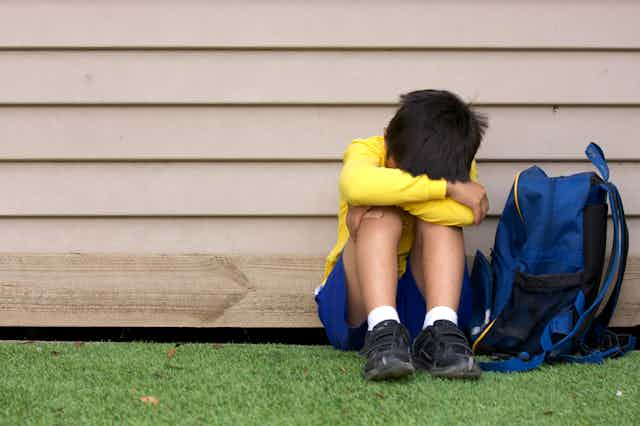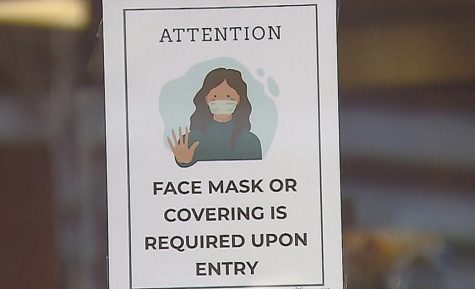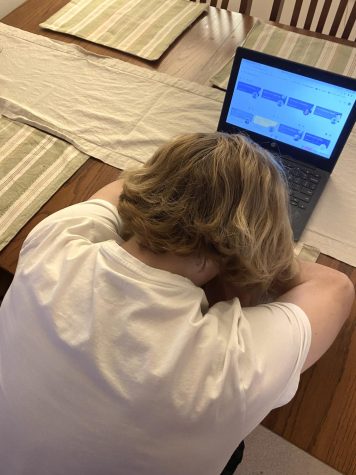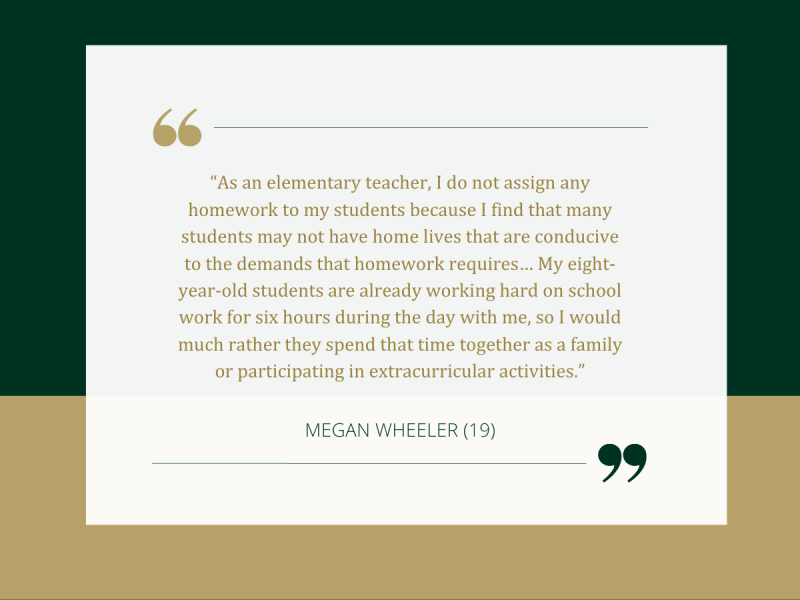Why Teachers Should Not Give Homework: A Closer Look

- Post author By admin
- March 25, 2024
Homework. The word itself might bring a shiver down the spine of many students, but it’s time we took a closer look at whether it’s really serving its purpose. In this blog, we’ll explore why teachers should not give homework and delve into its potential impacts on students and families.
Table of Contents

Why is homework not effective?
Homework’s effectiveness is a subject of ongoing debate among educators and researchers. Several reasons contribute to the perception that homework may not always be effective:
Lack of Individualization
Homework assignments often fail to account for students’ diverse learning styles, interests, and abilities. What works for one student may not work for another, leading to limited effectiveness in promoting understanding and retention of material.
Limited Feedback
Homework typically lacks immediate feedback, which is crucial for students to identify and correct misconceptions. Without timely guidance, students may reinforce incorrect understanding or miss opportunities for deeper learning.
Inequity in Access
Not all students have equal access to resources needed to complete homework assignments, such as textbooks, technology, or a quiet study space. This can exacerbate existing inequalities in educational outcomes.
Time Constraints
Students have various responsibilities outside of school, including extracurricular activities, family obligations, and part-time jobs. Excessive homework can encroach upon students’ time for rest, relaxation, and other important activities, leading to stress and burnout.
Rote Learning vs. Understanding
Homework assignments sometimes prioritize rote memorization over genuine understanding. This can lead to surface-level learning rather than fostering critical thinking, problem-solving, and creativity.
Diminished Intrinsic Motivation
Homework can sometimes become a chore rather than a meaningful learning experience. When assignments feel tedious or irrelevant, students may lose intrinsic motivation for learning, leading to disengagement and decreased academic performance.
Quality vs. Quantity
The effectiveness of homework depends on the quality of assignments rather than the quantity. Meaningful, purposeful tasks that reinforce classroom learning and encourage independent inquiry are more likely to yield positive outcomes than busywork or repetitive exercises.
Overall, while homework can have benefits when designed and implemented thoughtfully, its effectiveness hinges on various factors, including alignment with learning goals, consideration of students’ needs and circumstances, and opportunities for meaningful feedback and reflection.
Why Teachers Should Not Give Homework
Teachers should reconsider giving homework for several compelling reasons:
- Mental Health Impact: Homework can contribute to stress, anxiety, and even depression in students. Excessive workload and pressure to complete assignments within tight deadlines can take a toll on students’ mental well-being.
- Family Time: Homework often cuts into valuable family time, reducing opportunities for bonding, relaxation, and pursuing extracurricular activities. This can strain parent-child relationships and disrupt the balance between academic and personal life.
- Inequities in Access: Not all students have equal access to resources needed to complete homework, such as textbooks, technology, or a quiet study space. Assignments that require internet access or specialized materials can exacerbate inequalities among students.
- Limited Learning Efficacy: Research suggests that the correlation between homework and academic achievement is not always strong. Homework may promote rote memorization rather than deep understanding and critical thinking skills. In some cases, it may even hinder learning by overwhelming students or reinforcing misconceptions.
- Loss of Creativity and Play: Homework can encroach upon time that could be spent engaging in creative pursuits, hobbies, or unstructured play. These activities are essential for fostering imagination, problem-solving skills, and emotional well-being.
- Strain on Teachers: Designing, assigning, and grading homework can be time-consuming for teachers, diverting attention from other instructional activities and professional responsibilities. It can also lead to burnout and dissatisfaction among educators.
Alternative Activities That Teachers Can Assign To Students
Teachers have a plethora of alternative activities they can assign to students that promote learning, engagement, and creativity. Here are some examples:
- Independent Reading: Encourage students to select books of their choice and spend time reading for pleasure. This promotes literacy skills, expands vocabulary, and fosters a love of reading.
- Journaling: Assign reflective journal entries where students can write about their thoughts, experiences, or reactions to prompts related to the curriculum or personal interests. Journaling enhances writing skills, critical thinking, and self-awareness.
- Research Projects: Task students with researching a topic of interest or relevance to the curriculum and presenting their findings in a written report, multimedia presentation, or oral presentation. This encourages independent inquiry, information literacy, and communication skills.
- Creative Writing: Prompt students to write stories, poems, or scripts that allow them to express their imagination and creativity. Creative writing assignments develop storytelling abilities, language proficiency, and originality.
- Virtual Field Trips: Provide students with opportunities to explore museums, historical sites, or natural wonders through virtual tours or online resources. Virtual field trips offer immersive learning experiences and expose students to diverse cultures and environments.
- Art Projects: Assign art-based activities such as drawing, painting, or sculpture that relate to themes or concepts covered in class. Art projects foster creativity, fine motor skills, and visual literacy.
- STEM Challenges: Present students with STEM ( Science, Technology, Engineering, and Mathematics ) challenges or experiments that require problem-solving, critical thinking, and collaboration. STEM activities can be hands-on or virtual and engage students in real-world applications of STEM concepts.
- Debates or Discussions: Organize debates or discussions on current events, ethical dilemmas, or controversial topics relevant to the curriculum. Debates encourage research, public speaking, and persuasive argumentation skills.
- Community Service: Encourage students to participate in volunteer activities or community service projects that address local needs or global issues. Community service promotes empathy, social responsibility, and civic engagement.
- Physical Activity Challenges: Challenge students to engage in physical activities or exercise routines and track their progress over time. Physical activity promotes physical health, mental well-being, and self-discipline.
By offering a variety of alternative activities, teachers can cater to diverse learning styles and interests while fostering essential skills and knowledge acquisition outside of traditional homework assignments.
In conclusion (of why teachers should not give homework), it’s time for educators to rethink the role of homework in students’ lives. While it may have been a staple of education for decades, its potential negative impacts on students’ mental health, family life, and learning outcomes cannot be ignored.
By exploring alternative approaches to enhance learning and reduce inequities, we can create a more supportive and inclusive educational system for all. It’s time to say goodbye to homework as we know it and usher in a new era of learning.
- australia (2)
- duolingo (13)
- Education (283)
- General (76)
- How To (16)
- IELTS (127)
- Latest Updates (162)
- Malta Visa (6)
- Permanent residency (1)
- Programming (31)
- Scholarship (1)
- Sponsored (4)
- Study Abroad (187)
- Technology (12)
- work permit (8)
Recent Posts


School Life Balance , Tips for Online Students
The Pros and Cons of Homework
Updated: June 5, 2024
Published: January 23, 2020

Homework is a word that most students dread hearing. After hours upon hours of sitting in class , the last thing we want is more schoolwork over our precious weekends. While it’s known to be a staple of traditional schooling, homework has also become a rather divise topic. Some feel as though homework is a necessary part of school, while others believe that the time could be better invested. Should students have homework? Have a closer look into the arguments on both sides to decide for yourself.

Photo by energepic.com from Pexels
Why should students have homework.
Homework has been a long-standing part of the education system. It helps reinforce what students learn in the classroom, encourages good study habits, and promotes a deeper understanding of subjects. Studies have shown that homework can improve students’ grades and skills. Here are some reasons why homework is important:
1. Homework Encourages Practice
Many people believe that one of the positive effects of homework is that it encourages the discipline of practice. While it may be time consuming and boring compared to other activities, repetition is needed to get better at skills. Homework helps make concepts more clear, and gives students more opportunities when starting their career .
2. Homework Gets Parents Involved
Homework can be something that gets parents involved in their children’s lives if the environment is a healthy one. A parent helping their child with homework makes them take part in their academic success, and allows for the parent to keep up with what the child is doing in school. It can also be a chance to connect together.
3. Homework Teaches Time Management
Homework is much more than just completing the assigned tasks. Homework can develop time management skills , forcing students to plan their time and make sure that all of their homework assignments are done on time. By learning to manage their time, students also practice their problem-solving skills and independent thinking. One of the positive effects of homework is that it forces decision making and compromises to be made.
4. Homework Opens A Bridge Of Communication
Homework creates a connection between the student, the teacher, the school, and the parents. It allows everyone to get to know each other better, and parents can see where their children are struggling. In the same sense, parents can also see where their children are excelling. Homework in turn can allow for a better, more targeted educational plan for the student.
5. Homework Allows For More Learning Time
Homework allows for more time to complete the learning process. School hours are not always enough time for students to really understand core concepts, and homework can counter the effects of time shortages, benefiting students in the long run, even if they can’t see it in the moment.
6. Homework Reduces Screen Time
Many students in North America spend far too many hours watching TV. If they weren’t in school, these numbers would likely increase even more. Although homework is usually undesired, it encourages better study habits and discourages spending time in front of the TV. Homework can be seen as another extracurricular activity, and many families already invest a lot of time and money in different clubs and lessons to fill up their children’s extra time. Just like extracurricular activities, homework can be fit into one’s schedule.

The Other Side: Why Homework Is Bad
While homework has its benefits, there are also many arguments against it. Some believe that homework can cause increased stress, limit time for extracurricular activities, and reduce family time. Studies and expert opinions highlight the drawbacks of too much homework, showing how it can negatively affect students’ well-being and academic experience. Here are some reasons why homework might be bad:
1. Homework Encourages A Sedentary Lifestyle
Should students have homework? Well, that depends on where you stand. There are arguments both for the advantages and the disadvantages of homework.
While classroom time is important, playground time is just as important. If children are given too much homework, they won’t have enough playtime, which can impact their social development and learning. Studies have found that those who get more play get better grades in school , as it can help them pay closer attention in the classroom.
Children are already sitting long hours in the classroom, and homework assignments only add to these hours. Sedentary lifestyles can be dangerous and can cause health problems such as obesity. Homework takes away from time that could be spent investing in physical activity.
2. Homework Isn’t Healthy In Every Home
While many people that think homes are a beneficial environment for children to learn, not all homes provide a healthy environment, and there may be very little investment from parents. Some parents do not provide any kind of support or homework help, and even if they would like to, due to personal barriers, they sometimes cannot. Homework can create friction between children and their parents, which is one of the reasons why homework is bad .
3. Homework Adds To An Already Full-Time Job
School is already a full-time job for students, as they generally spend over 6 hours each day in class. Students also often have extracurricular activities such as sports, music, or art that are just as important as their traditional courses. Adding on extra hours to all of these demands is a lot for children to manage, and prevents students from having extra time to themselves for a variety of creative endeavors. Homework prevents self discovery and having the time to learn new skills outside of the school system. This is one of the main disadvantages of homework.
4. Homework Has Not Been Proven To Provide Results
Endless surveys have found that homework creates a negative attitude towards school, and homework has not been found to be linked to a higher level of academic success.
The positive effects of homework have not been backed up enough. While homework may help some students improve in specific subjects, if they have outside help there is no real proof that homework makes for improvements.
It can be a challenge to really enforce the completion of homework, and students can still get decent grades without doing their homework. Extra school time does not necessarily mean better grades — quality must always come before quantity.
Accurate practice when it comes to homework simply isn’t reliable. Homework could even cause opposite effects if misunderstood, especially since the reliance is placed on the student and their parents — one of the major reasons as to why homework is bad. Many students would rather cheat in class to avoid doing their homework at home, and children often just copy off of each other or from what they read on the internet.
5. Homework Assignments Are Overdone
The general agreement is that students should not be given more than 10 minutes a day per grade level. What this means is that a first grader should be given a maximum of 10 minutes of homework, while a second grader receives 20 minutes, etc. Many students are given a lot more homework than the recommended amount, however.
On average, college students spend as much as 3 hours per night on homework . By giving too much homework, it can increase stress levels and lead to burn out. This in turn provides an opposite effect when it comes to academic success.
The pros and cons of homework are both valid, and it seems as though the question of ‘‘should students have homework?’ is not a simple, straightforward one. Parents and teachers often are found to be clashing heads, while the student is left in the middle without much say.
It’s important to understand all the advantages and disadvantages of homework, taking both perspectives into conversation to find a common ground. At the end of the day, everyone’s goal is the success of the student.
FAQ Section
What are the benefits of assigning homework to students.
Homework reinforces what students learn in the classroom, helps develop good study habits, and promotes a deeper understanding of subjects. It also encourages practice, improves time management skills, and encourages parents to participate in their children’s education.
How much homework is too much for students?
Generally, it is recommended that students receive no more than 10 minutes of homework per grade level per day. For example, a first grader should have no more than 10 minutes of homework, while a fifth grader should have no more than 50 minutes.
What are the potential drawbacks of excessive homework assignments?
Excessive homework can lead to increased stress, a sedentary lifestyle, lack of free time for extracurricular activities, and diminished family time. It can also create a negative attitude towards school and learning.
How does homework impact students’ stress levels and well-being?
Too much homework can significantly increase stress levels and negatively affect students’ well-being. It can lead to anxiety, burnout, and reduced time for physical activity and relaxation.
Does homework promote independent thinking and problem-solving skills?
Yes, homework can promote independent thinking and problem-solving skills by encouraging students to tackle assignments on their own, manage their time effectively, and find solutions to problems without immediate assistance from teachers.
Are there any long-term effects of excessive homework on students?
Excessive homework over long periods can lead to chronic stress, burnout, and a negative attitude towards education. It can also hinder the development of social skills and reduce opportunities for self-discovery and creative pursuits.
How can technology enhance or supplement traditional homework practices?
Technology can provide interactive and engaging ways to complete homework, such as educational apps, online resources, and virtual collaboration tools. It can also offer personalized learning experiences and immediate feedback.
Are there any innovative approaches to homework that schools are adopting?
Some schools are adopting innovative approaches like flipped classrooms, where students watch lectures at home and do hands-on classroom activities. Project-based learning and personalized assignments tailored to individual student needs are also becoming more popular.
How do educators balance the workload with diverse student needs?
Educators can balance the workload by differentiating assignments, considering the individual needs and abilities of students, and providing flexible deadlines. Communication with students and parents helps to ensure that homework is manageable and effective for everyone.
Related Articles
- Share full article
Advertisement
Supported by
Student Opinion
Should We Get Rid of Homework?
Some educators are pushing to get rid of homework. Would that be a good thing?

By Jeremy Engle and Michael Gonchar
Do you like doing homework? Do you think it has benefited you educationally?
Has homework ever helped you practice a difficult skill — in math, for example — until you mastered it? Has it helped you learn new concepts in history or science? Has it helped to teach you life skills, such as independence and responsibility? Or, have you had a more negative experience with homework? Does it stress you out, numb your brain from busywork or actually make you fall behind in your classes?
Should we get rid of homework?
In “ The Movement to End Homework Is Wrong, ” published in July, the Times Opinion writer Jay Caspian Kang argues that homework may be imperfect, but it still serves an important purpose in school. The essay begins:
Do students really need to do their homework? As a parent and a former teacher, I have been pondering this question for quite a long time. The teacher side of me can acknowledge that there were assignments I gave out to my students that probably had little to no academic value. But I also imagine that some of my students never would have done their basic reading if they hadn’t been trained to complete expected assignments, which would have made the task of teaching an English class nearly impossible. As a parent, I would rather my daughter not get stuck doing the sort of pointless homework I would occasionally assign, but I also think there’s a lot of value in saying, “Hey, a lot of work you’re going to end up doing in your life is pointless, so why not just get used to it?” I certainly am not the only person wondering about the value of homework. Recently, the sociologist Jessica McCrory Calarco and the mathematics education scholars Ilana Horn and Grace Chen published a paper, “ You Need to Be More Responsible: The Myth of Meritocracy and Teachers’ Accounts of Homework Inequalities .” They argued that while there’s some evidence that homework might help students learn, it also exacerbates inequalities and reinforces what they call the “meritocratic” narrative that says kids who do well in school do so because of “individual competence, effort and responsibility.” The authors believe this meritocratic narrative is a myth and that homework — math homework in particular — further entrenches the myth in the minds of teachers and their students. Calarco, Horn and Chen write, “Research has highlighted inequalities in students’ homework production and linked those inequalities to differences in students’ home lives and in the support students’ families can provide.”
Mr. Kang argues:
But there’s a defense of homework that doesn’t really have much to do with class mobility, equality or any sense of reinforcing the notion of meritocracy. It’s one that became quite clear to me when I was a teacher: Kids need to learn how to practice things. Homework, in many cases, is the only ritualized thing they have to do every day. Even if we could perfectly equalize opportunity in school and empower all students not to be encumbered by the weight of their socioeconomic status or ethnicity, I’m not sure what good it would do if the kids didn’t know how to do something relentlessly, over and over again, until they perfected it. Most teachers know that type of progress is very difficult to achieve inside the classroom, regardless of a student’s background, which is why, I imagine, Calarco, Horn and Chen found that most teachers weren’t thinking in a structural inequalities frame. Holistic ideas of education, in which learning is emphasized and students can explore concepts and ideas, are largely for the types of kids who don’t need to worry about class mobility. A defense of rote practice through homework might seem revanchist at this moment, but if we truly believe that schools should teach children lessons that fall outside the meritocracy, I can’t think of one that matters more than the simple satisfaction of mastering something that you were once bad at. That takes homework and the acknowledgment that sometimes a student can get a question wrong and, with proper instruction, eventually get it right.
Students, read the entire article, then tell us:
Should we get rid of homework? Why, or why not?
Is homework an outdated, ineffective or counterproductive tool for learning? Do you agree with the authors of the paper that homework is harmful and worsens inequalities that exist between students’ home circumstances?
Or do you agree with Mr. Kang that homework still has real educational value?
When you get home after school, how much homework will you do? Do you think the amount is appropriate, too much or too little? Is homework, including the projects and writing assignments you do at home, an important part of your learning experience? Or, in your opinion, is it not a good use of time? Explain.
In these letters to the editor , one reader makes a distinction between elementary school and high school:
Homework’s value is unclear for younger students. But by high school and college, homework is absolutely essential for any student who wishes to excel. There simply isn’t time to digest Dostoyevsky if you only ever read him in class.
What do you think? How much does grade level matter when discussing the value of homework?
Is there a way to make homework more effective?
If you were a teacher, would you assign homework? What kind of assignments would you give and why?
Want more writing prompts? You can find all of our questions in our Student Opinion column . Teachers, check out this guide to learn how you can incorporate them into your classroom.
Students 13 and older in the United States and Britain, and 16 and older elsewhere, are invited to comment. All comments are moderated by the Learning Network staff, but please keep in mind that once your comment is accepted, it will be made public.
Jeremy Engle joined The Learning Network as a staff editor in 2018 after spending more than 20 years as a classroom humanities and documentary-making teacher, professional developer and curriculum designer working with students and teachers across the country. More about Jeremy Engle
Steals & Deals: Up to 85% off skin care, earrings, sandals and more
- Share this —

- Watch Full Episodes
- Read With Jenna
- Inspirational
- Relationships
- TODAY Table
- Newsletters
- Start TODAY
- Shop TODAY Awards
- Citi Concert Series
- Listen All Day
Follow today
More Brands
- On The Show
- TODAY Plaza
Why more and more teachers are joining the anti-homework movement
The word homework doesn’t just elicit groans from students. Many veteran educators aren’t fans of it either.
Barbara Tollison, a high school English teacher with nearly four decades in the classroom, stopped assigning homework five years ago. In lieu of writing papers, she asks her 10th graders in San Marcos, California, to read more books before bed.
“For the kids who understand the information, additional practice is unnecessary,” she told TODAY Parents . “The kids who need more support are going to go home and not do it right. It's just going to confuse them more. They don’t have the understanding and they need guidance.”
Tollison is part of a growing movement that believes learners can thrive academically without homework. According to Alfie Kohn, author of “ The Homework Myth ,” there’s never a good excuse for making kids work a second shift of academics in elementary and middle school.
“In high school, it’s a little more nuanced,” Kohn told TODAY Parents . “Some research has found a tiny correlation between doing more homework and doing better on standardized tests . But No. 1, standardized tests are a lousy measure of learning. No. 2, the correlation is small. And No. 3, it doesn’t prove a causal relationship. In other words, just because the same kids who get more homework do a little better on tests, doesn’t mean the homework made that happen.”
Kohn noted that “newer, better” studies are showing that the downside of homework is just as profound in 16-year-olds as it is in 8-year-olds, in terms of causing causing anxiety, a loss of interest in learning and family conflict.

Parents Is homework robbing your family of joy? You're not alone
“For my book, I interviewed high school teachers who completely stopped giving homework and there was no downside, it was all upside,” he shared.
“There just isn’t a good argument in favor of homework,” Kohn said.
Katie Sluiter, an 8th grade teacher in Michigan, couldn’t agree more. She believes that the bulk of instruction and support should happen in the classroom.
“What I realized early on in my career is that the kids who don’t need the practice are the only ones doing their homework,” Sluiter told TODAY Parents .
Sluiter added that homework is stressful and inequitable. Many children, especially those from lower-income families, have little chance of being successful with work being sent home.
“So many things are out of the student’s control, like the ability to have a quiet place to do homework,” Sluiter explained. “In my district, there are many parents that don’t speak any English, so they’re not going to be able to help with their child’s social studies homework. Some kids are responsible for watching their younger siblings after school.”

Parents Too much homework? Study shows elementary kids get 3 times more than they should
Sluiter also doesn’t want to add “an extra pile of stress” to already over-scheduled lives.
“Middle school is hard enough without worrying, ‘Did I get my conjunctions sheet done?’” she said. “It’s ridiculous. It’s just too much. We need to let them be kids."
Kohn, who has written 14 books on parenting and education, previously told TODAY that moms and dads should speak up on behalf of their children.
"If your child's teacher never assigns homework, take a moment to thank them for doing what's in your child's best interest — and for acknowledging that families, not schools, ought to decide what happens during family time," he said. "If your child is getting homework, organize a bunch of parents to meet with the teacher and administrators — not to ask, 'Why so much?' but, given that the research says it's all pain and no gain, to ask, 'Why is there any?'"
Related video:
Rachel Paula Abrahamson is a lifestyle reporter who writes for the parenting, health and shop verticals. Her bylines have appeared in The New York Times, Good Housekeeping, Redbook, and elsewhere. Rachel lives in the Boston area with her husband and their two daughters. Follow her on Instagram .

Bunnie XO and Jelly Roll announce plans to have a baby using IVF

Kevin Costner says his kids were ‘startled’ when he got emotional during a standing ovation

50 animal-inspired baby names for your little Bear or Birdie

Should dads bring their daughters into the men’s bathroom or women’s bathroom? We asked an expert

Educators share 6 fun ways to help kids avoid summer learning loss

'Property Brothers' star Drew Scott and wife Linda Phan welcome 2nd child

Watch these adorable twin babies meet each other for the first time

‘RHONY’ alum Eboni K. Williams, 40, is pregnant with her 1st child

These 1960s baby names are positively groovy

Brooke Shields on daughters' reaction to ‘two hot guys’ being interested in her in ‘Mother of the Bride’
Pop culture.
- About the Hub
- Announcements
- Faculty Experts Guide
- Subscribe to the newsletter
Explore by Topic
- Arts+Culture
- Politics+Society
- Science+Technology
- Student Life
- University News
- Voices+Opinion
- About Hub at Work
- Gazette Archive
- Benefits+Perks
- Health+Well-Being
- Current Issue
- About the Magazine
- Past Issues
- Support Johns Hopkins Magazine
- Subscribe to the Magazine
You are using an outdated browser. Please upgrade your browser to improve your experience.

Credit: August de Richelieu
Does homework still have value? A Johns Hopkins education expert weighs in
Joyce epstein, co-director of the center on school, family, and community partnerships, discusses why homework is essential, how to maximize its benefit to learners, and what the 'no-homework' approach gets wrong.
By Vicky Hallett
The necessity of homework has been a subject of debate since at least as far back as the 1890s, according to Joyce L. Epstein , co-director of the Center on School, Family, and Community Partnerships at Johns Hopkins University. "It's always been the case that parents, kids—and sometimes teachers, too—wonder if this is just busy work," Epstein says.
But after decades of researching how to improve schools, the professor in the Johns Hopkins School of Education remains certain that homework is essential—as long as the teachers have done their homework, too. The National Network of Partnership Schools , which she founded in 1995 to advise schools and districts on ways to improve comprehensive programs of family engagement, has developed hundreds of improved homework ideas through its Teachers Involve Parents in Schoolwork program. For an English class, a student might interview a parent on popular hairstyles from their youth and write about the differences between then and now. Or for science class, a family could identify forms of matter over the dinner table, labeling foods as liquids or solids. These innovative and interactive assignments not only reinforce concepts from the classroom but also foster creativity, spark discussions, and boost student motivation.
"We're not trying to eliminate homework procedures, but expand and enrich them," says Epstein, who is packing this research into a forthcoming book on the purposes and designs of homework. In the meantime, the Hub couldn't wait to ask her some questions:
What kind of homework training do teachers typically get?
Future teachers and administrators really have little formal training on how to design homework before they assign it. This means that most just repeat what their teachers did, or they follow textbook suggestions at the end of units. For example, future teachers are well prepared to teach reading and literacy skills at each grade level, and they continue to learn to improve their teaching of reading in ongoing in-service education. By contrast, most receive little or no training on the purposes and designs of homework in reading or other subjects. It is really important for future teachers to receive systematic training to understand that they have the power, opportunity, and obligation to design homework with a purpose.
Why do students need more interactive homework?
If homework assignments are always the same—10 math problems, six sentences with spelling words—homework can get boring and some kids just stop doing their assignments, especially in the middle and high school years. When we've asked teachers what's the best homework you've ever had or designed, invariably we hear examples of talking with a parent or grandparent or peer to share ideas. To be clear, parents should never be asked to "teach" seventh grade science or any other subject. Rather, teachers set up the homework assignments so that the student is in charge. It's always the student's homework. But a good activity can engage parents in a fun, collaborative way. Our data show that with "good" assignments, more kids finish their work, more kids interact with a family partner, and more parents say, "I learned what's happening in the curriculum." It all works around what the youngsters are learning.
Is family engagement really that important?
At Hopkins, I am part of the Center for Social Organization of Schools , a research center that studies how to improve many aspects of education to help all students do their best in school. One thing my colleagues and I realized was that we needed to look deeply into family and community engagement. There were so few references to this topic when we started that we had to build the field of study. When children go to school, their families "attend" with them whether a teacher can "see" the parents or not. So, family engagement is ever-present in the life of a school.
My daughter's elementary school doesn't assign homework until third grade. What's your take on "no homework" policies?
There are some parents, writers, and commentators who have argued against homework, especially for very young children. They suggest that children should have time to play after school. This, of course is true, but many kindergarten kids are excited to have homework like their older siblings. If they give homework, most teachers of young children make assignments very short—often following an informal rule of 10 minutes per grade level. "No homework" does not guarantee that all students will spend their free time in productive and imaginative play.
Some researchers and critics have consistently misinterpreted research findings. They have argued that homework should be assigned only at the high school level where data point to a strong connection of doing assignments with higher student achievement . However, as we discussed, some students stop doing homework. This leads, statistically, to results showing that doing homework or spending more minutes on homework is linked to higher student achievement. If slow or struggling students are not doing their assignments, they contribute to—or cause—this "result."
Teachers need to design homework that even struggling students want to do because it is interesting. Just about all students at any age level react positively to good assignments and will tell you so.
Did COVID change how schools and parents view homework?
Within 24 hours of the day school doors closed in March 2020, just about every school and district in the country figured out that teachers had to talk to and work with students' parents. This was not the same as homeschooling—teachers were still working hard to provide daily lessons. But if a child was learning at home in the living room, parents were more aware of what they were doing in school. One of the silver linings of COVID was that teachers reported that they gained a better understanding of their students' families. We collected wonderfully creative examples of activities from members of the National Network of Partnership Schools. I'm thinking of one art activity where every child talked with a parent about something that made their family unique. Then they drew their finding on a snowflake and returned it to share in class. In math, students talked with a parent about something the family liked so much that they could represent it 100 times. Conversations about schoolwork at home was the point.
How did you create so many homework activities via the Teachers Involve Parents in Schoolwork program?
We had several projects with educators to help them design interactive assignments, not just "do the next three examples on page 38." Teachers worked in teams to create TIPS activities, and then we turned their work into a standard TIPS format in math, reading/language arts, and science for grades K-8. Any teacher can use or adapt our prototypes to match their curricula.
Overall, we know that if future teachers and practicing educators were prepared to design homework assignments to meet specific purposes—including but not limited to interactive activities—more students would benefit from the important experience of doing their homework. And more parents would, indeed, be partners in education.
Posted in Voices+Opinion
You might also like
News network.
- Johns Hopkins Magazine
- Get Email Updates
- Submit an Announcement
- Submit an Event
- Privacy Statement
- Accessibility
Discover JHU
- About the University
- Schools & Divisions
- Academic Programs
- Plan a Visit
- my.JohnsHopkins.edu
- © 2024 Johns Hopkins University . All rights reserved.
- University Communications
- 3910 Keswick Rd., Suite N2600, Baltimore, MD
- X Facebook LinkedIn YouTube Instagram
Why I Think All Schools Should Abolish Homework

H ow long is your child’s workweek? Thirty hours? Forty? Would it surprise you to learn that some elementary school kids have workweeks comparable to adults’ schedules? For most children, mandatory homework assignments push their workweek far beyond the school day and deep into what any other laborers would consider overtime. Even without sports or music or other school-sponsored extracurriculars, the daily homework slog keeps many students on the clock as long as lawyers, teachers, medical residents, truck drivers and other overworked adults. Is it any wonder that,deprived of the labor protections that we provide adults, our kids are suffering an epidemic of disengagement, anxiety and depression ?
With my youngest child just months away from finishing high school, I’m remembering all the needless misery and missed opportunities all three of my kids suffered because of their endless assignments. When my daughters were in middle school, I would urge them into bed before midnight and then find them clandestinely studying under the covers with a flashlight. We cut back on their activities but still found ourselves stuck in a system on overdrive, returning home from hectic days at 6 p.m. only to face hours more of homework. Now, even as a senior with a moderate course load, my son, Zak, has spent many weekends studying, finding little time for the exercise and fresh air essential to his well-being. Week after week, and without any extracurriculars, Zak logs a lot more than the 40 hours adults traditionally work each week — and with no recognition from his “bosses” that it’s too much. I can’t count the number of shared evenings, weekend outings and dinners that our family has missed and will never get back.
How much after-school time should our schools really own?
In the midst of the madness last fall, Zak said to me, “I feel like I’m working towards my death. The constant demands on my time since 5th grade are just going to continue through graduation, into college, and then into my job. It’s like I’m on an endless treadmill with no time for living.”
My spirit crumbled along with his.
Like Zak, many people are now questioning the point of putting so much demand on children and teens that they become thinly stretched and overworked. Studies have long shown that there is no academic benefit to high school homework that consumes more than a modest number of hours each week. In a study of high schoolers conducted by the Organization for Economic Cooperation and Development (OECD), researchers concluded that “after around four hours of homework per week, the additional time invested in homework has a negligible impact on performance.”
In elementary school, where we often assign overtime even to the youngest children, studies have shown there’s no academic benefit to any amount of homework at all.
Our unquestioned acceptance of homework also flies in the face of all we know about human health, brain function and learning. Brain scientists know that rest and exercise are essential to good health and real learning . Even top adult professionals in specialized fields take care to limit their work to concentrated periods of focus. A landmark study of how humans develop expertise found that elite musicians, scientists and athletes do their most productive work only about four hours per day .
Yet we continue to overwork our children, depriving them of the chance to cultivate health and learn deeply, burdening them with an imbalance of sedentary, academic tasks. American high school students , in fact, do more homework each week than their peers in the average country in the OECD, a 2014 report found.
It’s time for an uprising.
Already, small rebellions are starting. High schools in Ridgewood, N.J. , and Fairfax County, Va., among others, have banned homework over school breaks. The entire second grade at Taylor Elementary School in Arlington, Va., abolished homework this academic year. Burton Valley Elementary School in Lafayette, Calif., has eliminated homework in grades K through 4. Henry West Laboratory School , a public K-8 school in Coral Gables, Fla., eliminated mandatory, graded homework for optional assignments. One Lexington, Mass., elementary school is piloting a homework-free year, replacing it with reading for pleasure.
More from TIME
Across the Atlantic, students in Spain launched a national strike against excessive assignments in November. And a second-grade teacher in Texas, made headlines this fall when she quit sending home extra work , instead urging families to “spend your evenings doing things that are proven to correlate with student success. Eat dinner as a family, read together, play outside and get your child to bed early.”
It is time that we call loudly for a clear and simple change: a workweek limit for children, counting time on the clock before and after the final bell. Why should schools extend their authority far beyond the boundaries of campus, dictating activities in our homes in the hours that belong to families? An all-out ban on after-school assignments would be optimal. Short of that, we can at least sensibly agree on a cap limiting kids to a 40-hour workweek — and fewer hours for younger children.
Resistance even to this reasonable limit will be rife. Mike Miller, an English teacher at Thomas Jefferson High School for Science and Technology in Alexandria, Va., found this out firsthand when he spearheaded a homework committee to rethink the usual approach. He had read the education research and found a forgotten policy on the county books limiting homework to two hours a night, total, including all classes. “I thought it would be a slam dunk” to put the two-hour cap firmly in place, Miller said.
But immediately, people started balking. “There was a lot of fear in the community,” Miller said. “It’s like jumping off a high dive with your kids’ future. If we reduce homework to two hours or less, is my kid really going to be okay?” In the end, the committee only agreed to a homework ban over school breaks.
Miller’s response is a great model for us all. He decided to limit assignments in his own class to 20 minutes a night (the most allowed for a student with six classes to hit the two-hour max). His students didn’t suddenly fail. Their test scores remained stable. And they started using their more breathable schedule to do more creative, thoughtful work.
That’s the way we will get to a sane work schedule for kids: by simultaneously pursuing changes big and small. Even as we collaboratively press for policy changes at the district or individual school level, all teachers can act now, as individuals, to ease the strain on overworked kids.
As parents and students, we can also organize to make homework the exception rather than the rule. We can insist that every family, teacher and student be allowed to opt out of assignments without penalty to make room for important activities, and we can seek changes that shift practice exercises and assignments into the actual school day.
We’ll know our work is done only when Zak and every other child can clock out, eat dinner, sleep well and stay healthy — the very things needed to engage and learn deeply. That’s the basic standard the law applies to working adults. Let’s do the same for our kids.
Vicki Abeles is the author of the bestseller Beyond Measure: Rescuing an Overscheduled, Overtested, Underestimated Generation, and director and producer of the documentaries “ Race to Nowhere ” and “ Beyond Measure. ”
More Must-Reads from TIME
- How Joe Biden Leads
- TIME100 Most Influential Companies 2024
- Javier Milei’s Radical Plan to Transform Argentina
- How Private Donors Shape Birth-Control Choices
- What Sealed Trump’s Fate : Column
- Are Walking Pads Worth It?
- 15 LGBTQ+ Books to Read for Pride
- Want Weekly Recs on What to Watch, Read, and More? Sign Up for Worth Your Time
Contact us at [email protected]
- Future Students
- Current Students
- Faculty/Staff

News and Media
- News & Media Home
- Research Stories
- School's In
- In the Media
You are here
More than two hours of homework may be counterproductive, research suggests.

A Stanford education researcher found that too much homework can negatively affect kids, especially their lives away from school, where family, friends and activities matter. "Our findings on the effects of homework challenge the traditional assumption that homework is inherently good," wrote Denise Pope , a senior lecturer at the Stanford Graduate School of Education and a co-author of a study published in the Journal of Experimental Education . The researchers used survey data to examine perceptions about homework, student well-being and behavioral engagement in a sample of 4,317 students from 10 high-performing high schools in upper-middle-class California communities. Along with the survey data, Pope and her colleagues used open-ended answers to explore the students' views on homework. Median household income exceeded $90,000 in these communities, and 93 percent of the students went on to college, either two-year or four-year. Students in these schools average about 3.1 hours of homework each night. "The findings address how current homework practices in privileged, high-performing schools sustain students' advantage in competitive climates yet hinder learning, full engagement and well-being," Pope wrote. Pope and her colleagues found that too much homework can diminish its effectiveness and even be counterproductive. They cite prior research indicating that homework benefits plateau at about two hours per night, and that 90 minutes to two and a half hours is optimal for high school. Their study found that too much homework is associated with: • Greater stress : 56 percent of the students considered homework a primary source of stress, according to the survey data. Forty-three percent viewed tests as a primary stressor, while 33 percent put the pressure to get good grades in that category. Less than 1 percent of the students said homework was not a stressor. • Reductions in health : In their open-ended answers, many students said their homework load led to sleep deprivation and other health problems. The researchers asked students whether they experienced health issues such as headaches, exhaustion, sleep deprivation, weight loss and stomach problems. • Less time for friends, family and extracurricular pursuits : Both the survey data and student responses indicate that spending too much time on homework meant that students were "not meeting their developmental needs or cultivating other critical life skills," according to the researchers. Students were more likely to drop activities, not see friends or family, and not pursue hobbies they enjoy. A balancing act The results offer empirical evidence that many students struggle to find balance between homework, extracurricular activities and social time, the researchers said. Many students felt forced or obligated to choose homework over developing other talents or skills. Also, there was no relationship between the time spent on homework and how much the student enjoyed it. The research quoted students as saying they often do homework they see as "pointless" or "mindless" in order to keep their grades up. "This kind of busy work, by its very nature, discourages learning and instead promotes doing homework simply to get points," said Pope, who is also a co-founder of Challenge Success , a nonprofit organization affiliated with the GSE that conducts research and works with schools and parents to improve students' educational experiences.. Pope said the research calls into question the value of assigning large amounts of homework in high-performing schools. Homework should not be simply assigned as a routine practice, she said. "Rather, any homework assigned should have a purpose and benefit, and it should be designed to cultivate learning and development," wrote Pope. High-performing paradox In places where students attend high-performing schools, too much homework can reduce their time to foster skills in the area of personal responsibility, the researchers concluded. "Young people are spending more time alone," they wrote, "which means less time for family and fewer opportunities to engage in their communities." Student perspectives The researchers say that while their open-ended or "self-reporting" methodology to gauge student concerns about homework may have limitations – some might regard it as an opportunity for "typical adolescent complaining" – it was important to learn firsthand what the students believe. The paper was co-authored by Mollie Galloway from Lewis and Clark College and Jerusha Conner from Villanova University.
Clifton B. Parker is a writer at the Stanford News Service .
More Stories

⟵ Go to all Research Stories
Get the Educator
Subscribe to our monthly newsletter.
Stanford Graduate School of Education
482 Galvez Mall Stanford, CA 94305-3096 Tel: (650) 723-2109
- Contact Admissions
- GSE Leadership
- Site Feedback
- Web Accessibility
- Career Resources
- Faculty Open Positions
- Explore Courses
- Academic Calendar
- Office of the Registrar
- Cubberley Library
- StanfordWho
- StanfordYou
Improving lives through learning

- Stanford Home
- Maps & Directions
- Search Stanford
- Emergency Info
- Terms of Use
- Non-Discrimination
- Accessibility
© Stanford University , Stanford , California 94305 .

‘There’s only so far I can take them’ – why teachers give up on struggling students who don’t do their homework
Assistant Professor of Sociology, Indiana University
Professor of Mathematics Education, Vanderbilt University
Disclosure statement
Jessica Calarco has received funding from the Institute of Education Sciences, U.S. Department of Education, through Grant R305C050041-05 to the University of Pennsylvania and from the Networks, Complex Systems & Health Project Development Team within the ICTSI NIH/NCRR Grant Number UL1TR001108. She is a member of the Board of Directors of the Council on Contemporary Families.
Ilana Horn currently receives funding from the National Science Foundation. In the past, her work has been funded by the Spencer Foundation, the Carnegie Foundation, the Washington State Office of the Superintendent of Public Instruction, the Mindset Scholars Network, and the American Educational Research Association.
Vanderbilt University provides funding as a founding partner of The Conversation US.
Indiana University provides funding as a member of The Conversation US.
View all partners
Whenever “Gina,” a fifth grader at a suburban public school on the East Coast, did her math homework, she never had to worry about whether she could get help from her mom.
“I help her a lot with homework,” Gina’s mother, a married, mid-level manager for a health care company, explained to us during an interview for a study we did about how teachers view students who complete their homework versus those who do not.
“I try to maybe re-explain things, like, things she might not understand,” Gina’s mom continued. “Like, if she’s struggling, I try to teach her a different way. I understand that Gina is a very visual child but also needs to hear things, too. I know that when I’m reading it, and I’m writing it, and I’m saying it to her, she comprehends it better.”
One of us is a sociologist who looks at how schools favor middle-class families . The other is a math education professor who examines how math teachers perceive their students based on their work.
We were curious about how teachers reward students who complete their homework and penalize and criticize those who don’t – and whether there was any link between those things and family income.
By analyzing student report cards and interviewing teachers, students and parents, we found that teachers gave good grades for homework effort and other rewards to students from middle-class families like Gina, who happen to have college-educated parents who take an active role in helping their children complete their homework.
But when it comes to students such as “Jesse,” who attends the same school as Gina and is the child of a poor, single mother of two, we found that teachers had a more bleak outlook.
The names “Jesse” and “Gina” are pseudonyms to protect the children’s identities. Jesse can’t count on his mom to help with his homework because she struggled in school herself.
“I had many difficulties in school,” Jesse’s mom told us for the same study. “I had behavior issues, attention-deficit. And so after seventh grade, they sent me to an alternative high school, which I thought was the worst thing in the world. We literally did, like, first and second grade work. So my education was horrible.”
Jesse’s mother admitted she still can’t figure out division to this day.
“[My son will] ask me a question, and I’ll go look at it and it’s like algebra, in fifth grade. And I’m like: ‘What’s this?’” Jesse’s mom said. “So it’s really hard. Sometimes you just feel stupid. Because he’s in fifth grade. And I’m like, I should be able to help my son with his homework in fifth grade.”
Unlike Gina’s parents, who are married and own their own home in a middle-class neighborhood, Jesse’s mom isn’t married and rents a place in a mobile home community. She had Jesse when she was a teenager and was raising Jesse and his brother mostly on her own, though with some help from her parents. Her son is eligible for free lunch.
An issue of equity
As a matter of fairness, we think teachers should take these kinds of economic and social disparities into account in how they teach and grade students. But what we found in the schools we observed is that they usually don’t, and instead they seemed to accept inequality as destiny. Consider, for instance, what a fourth grade teacher – one of 22 teachers we interviewed and observed during the study – told us about students and homework.
“I feel like there’s a pocket here – a lower income pocket,” one teacher said. “And that trickles down to less support at home, homework not being done, stuff not being returned and signed. It should be almost 50-50 between home and school. If they don’t have the support at home, there’s only so far I can take them. If they’re not going to go home and do their homework, there’s just not much I can do.”
While educators recognize the different levels of resources that students have at home, they continue to assign homework that is too difficult for students to complete independently, and reward students who complete the homework anyway.

Consider, for example, how one seventh grade teacher described his approach to homework: “I post the answers to the homework for every course online. The kids do the homework, and they’re supposed to check it and figure out if they need extra help. The kids who do that, there is an amazing correlation between that and positive grades. The kids who don’t do that are bombing.
"I need to drill that to parents that they need to check homework with their student, get it checked to see if it’s right or wrong and then ask me questions. I don’t want to use class time to go over homework.”
The problem is that the benefits of homework are not uniformly distributed. Rather, research shows that students from high-income families make bigger achievement gains through homework than students from low-income families.
This relationship has been found in both U.S. and Dutch schools , and it suggests that homework may contribute to disparities in students’ performance in school.
Tougher struggles
On top of uneven academic benefits, research also reveals that making sense of the math homework assigned in U.S schools is often more difficult for parents who have limited educational attainment , parents who feel anxious over mathematical content . It is also difficult for parents who learned math using different approaches than those currently taught in the U.S. .
Meanwhile, students from more-privileged families are disproportionately more likely to have a parent or a tutor available after school to help with homework, as well as parents who encourage them to seek help from their teachers if they have questions . And they are also more likely to have parents who feel entitled to intervene at school on their behalf.
False ideas about merit
In the schools we observed, teachers interpreted homework inequalities through what social scientists call the myth of meritocracy . The myth suggests that all students in the U.S. have the same opportunities to succeed in school and that any differences in students’ outcomes are the result of different levels of effort. Teachers in our study said things that are in line with this belief.
For instance, one third grade teacher told us: “We’re dealing with some really struggling kids. There are parents that I’ve never even met. They don’t come to conferences. There’s been no communication whatsoever. … I’ll write notes home or emails; they never respond. There are kids who never do their homework, and clearly the parents are OK with that.
"When you don’t have that support from home, what can you do? They can’t study by themselves. So if they don’t have parents that are going to help them out with that, then that’s tough on them, and it shows.”
- Mathematics
- K-12 education
- Math skills
- Math scores
- Higher ed attainment

Head of School, School of Arts & Social Sciences, Monash University Malaysia


Chief Operating Officer (COO)

Clinical Teaching Fellow

Data Manager

Director, Social Policy
This is why we should stop giving homework
At Human Restoration Project, one of the core systemic changes we suggest is the elimination of homework. Throughout this piece, I will outline several research studies and reports that demonstrate how the negative impact of homework is so evident that any mandated homework, outside of some minor catching up or for incredibly niche cases, simply does more harm than good.
I’ll summarize four main reasons why homework just flat out doesn’t make sense.
- Achievement, whether that be measured through standardized tests or general academic knowledge, isn’t correlated to assigning or completing homework.
- Homework is an inequitable practice that harms certain individuals more than others, to the detriment of those with less resources and to minor, if any, improvement for those with resources.
- It contributes to negative impacts at home with one’s family, peer relationships, and just general school-life balance, which causes far more problems than homework is meant to solve.
- And finally, it highlights and exacerbates our obsession with ultra-competitive college admissions and job opportunities, and other detrimental faults of making everything about getting ahead .
Does Homework Make Us Learn More?
Homework is such a ubiquitous part of school that it’s considered radical to even suggest that lessening it could be good teaching. It’s completely normal for families to spend extra hours each night, even on weekends, completing projects, reports, and worksheets. On average, teenagers spend about an hour a day completing homework, which is up 30-45 minutes from decades past. Kindergartners, who are usually saved from completing a lot of after school work, average about 25 minutes of homework a night (which to note, is 25 minutes too much than is recommended by child development experts).
The “10-minute rule”, endorsed by the National Parent Teacher Association and National Education Association, is incorporated into most school policies: there’s 10 minutes of homework per day per grade level – as in 20 minutes a day in second grade or 2 hours a day in 12th grade.
It’s so normalized that it was odd, when seemingly out of nowhere the President of Ireland recently suggested that homework should be banned . (And many experts were shocked at this suggestion.)
Numerous studies on homework reflect inconsistent results on what it exactly achieves. Homework is rarely shown to have any impact on achievement, whether that be measured through standardized testing or otherwise. As I’ll talk about later, the amount of marginal gains homework may lead to aren’t worth its negative trade-offs.
Let’s look at a quick summary of various studies:
- First off, the book National Differences, Global Similarities: World Culture and the Future of Schooling by David P. Baker and Gerald K. LeTendre draws on a 4 year investigation of schools in 47 countries. It’s the largest study of its type: looking at how schools operate, their pedagogy, their procedures, and the like. They made a shocking discovery: countries that assigned the least amount of homework: Denmark and the Czech Republic, had much higher test scores than those who assigned the most amount of homework: Iran and Thailand. The same work indicated that there was no correlation between academic achievement and homework with elementary students, and any moderate positive correlation in middle or high school diminished as more and more homework was assigned.
- A study in Contemporary Educational Psychology of 28,051 high school seniors concluded that quality of instruction, motivation, and ability are all correlated to a student’s academic success. However, homework’s effectiveness was marginal or perhaps even counterproductive: leading to more academic problems than it hoped to solve.
- The Teachers College Record published that homework added academic pressure and societal stress to those already experiencing pressures from other forces at home. This caused a further divide in academic performance from those with more privileged backgrounds. We’ll talk about this more later.
- A study in the Journal of Educational Psychology examined 2,342 student attitudes toward homework in foreign language classes. They found that time spent on homework had a significant negative impact on grades and standardized test scores. The researchers concluded that this may be because participants had to spend their time completing worksheets rather than spend time practicing skills on their own time.
- Some studies are more positive. In fact, a meta-analysis of 32 homework studies in the Review of Educational Research found that most studies indicated a positive correlation between achievement and doing homework. However, the researchers noted that generally these studies made it hard to draw causal conclusions due to how they were set up and conducted. There was so much variance that it was difficult to make a claim one way or another, even though the net result seemed positive. This often cited report led by Dr. Harris Cooper at Duke University is the most commonly used by proponents of the practice. But popular education critic Alfie Kohn believes that this study fails to establish, ironically, causation among other factors.
- And that said in a later published study in The High School Journal , researchers concluded that in all homework assigned, there were only modest linkages to improved math and science standardized test scores, with no difference in other subjects between those who were assigned homework and those who were not. None of the homework assigned had any bearing on grades. The only difference was for a few points on those particular subject’s standardized test scores.
All in all, the data is relatively inconclusive. Some educational experts suggest that there should be hours of homework in high school, some homework in middle school, and none in elementary school. Some call for the 10-minute rule. Others say that homework doesn’t work at all. It’s still fairly unstudied how achievement is impacted as a result of homework. But as Alfie Kohn says , “The better the research, the less likely one is to find any benefits from homework.” That said, when we couple this data with the other negative impacts of assigning homework: how it impacts those at the margins, leads to anxiety and stress, and takes away from important family time – it really makes us question why this is such a ubiquitous practice.
Or as Etta Kralovec and John Buell write in The End of Homework: How Homework Disrupts Families, Overburdens Children, and Limits Learning,
‘Extensive classroom research of ‘time on task’ and international comparisons of year-round time for study suggest that additional homework might promote U.S. students’ achievement.’ This written statement by some of the top professionals in the field of homework research raises some difficult questions. More homework might promote student achievement? Are all our blood, sweat, and tears at the kitchen table over homework based on something that merely might be true? Our belief in the value of homework is akin to faith. We assume that it fosters a love of learning, better study habits, improved attitudes toward school, and greater self-discipline; we believe that better teachers assign more homework and that one sign of a good school is a good, enforced homework policy.
Our obsession with homework is likely rooted in select studies that imply it leads to higher test scores. The authors continue by deciphering this phenomena:
“[this is] a problem that routinely bedevils all the sciences: the relationship between correlation and causality. If A and B happen simultaneously, we do not know whether A causes B or B causes A, or whether both phenomena occur casually together or are individually determined by another set of variables…Thus far, most studies in this area have amounted to little more than crude correlations that cannot justify the sweeping conclusions some have derived from them.”
Alfie Kohn adds that even the correlation between achievement and homework doesn’t really matter. Saying,
“If all you want is to cram kids’ heads with facts for tomorrow’s tests that they’re going to forget by next week, yeah, if you give them more time and make them do the cramming at night, that could raise the scores…But if you’re interested in kids who know how to think or enjoy learning, then homework isn’t merely ineffective, but counterproductive… The practice of homework assumes that only academic growth matters, to the point that having kids work on that most of the school day isn’t enough…”
Ramping Up Inequity
Many justify the practice of assigning homework with the well-intentioned belief that we’ll make a more equitable society through high standards. However, it seems to be that these practices actually add to inequity. “Rigorous” private and preparatory schools – whether they be “no excuses” charters in marginalized communities or “college ready” elite suburban institutions, are notorious for extreme levels of homework assignment. Yet, many progressive schools who focus on holistic learning and self-actualization assign no homework and achieve the same levels of college and career success.
Perhaps this is because the largest predictor of college success has nothing to do with rigorous preparation, and everything to do with family income levels. 77% of students from high income families graduated from a highly competitive college, whereas 9% of students from low income families did the same .
It seems like by loading students up with mountains of homework each night in an attempt to get them into these colleges, we actually make their chances of success worse .

When assigning homework, it is common practice to recommend that families provide a quiet, well-lit place for the child to study. After all, it’s often difficult to complete assignments after a long day. Having this space, time, and energy must always be considered in the context of the family’s education, income, available time, and job security. For many people, jobs have become less secure and less well paid over the course of the last two decades.
In a United States context, we work the longest hours of any nation . Individuals in 2006 worked 11 hours longer than their counterparts in 1979. In 2020, 70% of children lived in households where both parents work. We are the only country in the industrial world without guaranteed family leave. And the results are staggering: 90% of women and 95% of men report work-family conflict . According to the Center for American Progress , “the United States today has the most family-hostile public policy in the developed world due to a long-standing political impasse.”
As a result, parents have much less time to connect with their children. This is not a call to a return to traditional family roles or to have stay-at-home parents – rather, our occupation-oriented society is structured inadequately which causes problems with how homework is meant to function.
For those who work in entry level positions, such as customer service and cashiers, there is an average 240% turnover per year due to lack of pay, poor conditions, work-life balance, and mismanagement. Family incomes continue to decline for lower- and middle-class Americans, leaving more families to work increased hours or multiple jobs. In other words, families, especially poor families, have less opportunities to spend time with their children, let alone foster academic “gains” via homework.

Even for students with ample resources who attend “elite schools”, the amount of homework is stressful. In a 2013 study in The Journal of Experiential Education, researchers conducted a survey of 4,317 students in 10 high-performing upper middle class high schools. These students had an average of more than 3 hours of homework a night. In comparison to their peers, they had more academic stress, notable physical health problems, and spent a worrying amount of time focused entirely on school and nothing else. Competitive advantage came at the cost of well-being and just being a kid.
A similar study in Frontiers of Psychology found that students pressured in the competitive college admissions process , who attended schools assigning hours of homework each night and promoting college-level courses and resume building extracurriculars, felt extreme stress. Two-thirds of the surveyed students reported turning to alcohol and drugs to cope.
In fact, a paper published by Dr. Suniya Luthar and her colleagues concluded that upper middle-class youth are actually more likely to be troubled than their middle class peers . There is an extreme problem with academic stress, where young people are engaging in a rat race toward the best possible educational future as determined by Ivy League colleges and scholarships. To add fuel to the fire, schools continue to add more and more homework to have students get ahead – which has a massively negative impact on both ends of the economic spectrum.
A 2012 study by Dr. Jonathan Daw indicated that their results,
“...imply that increases in the amount of homework assigned may increase the socioeconomic achievement gap in math, science, and reading in secondary school.”
In an effort to increase engagement with homework, teachers have been encouraged to create interesting, creative assignments. In fact, most researchers seem to agree that the quality of assignments matters a whole lot . After all, maybe assigning all of this homework won’t matter as long as it’s interesting and relevant to students? Although this has good intentions, rigorous homework with increased complexity places more impetus on parents. As researcher and author Gary Natrillo, an initial proponent of creative homework , stated later:
…not only was homework being assigned as suggested by all the ‘experts,’ but the teacher was obviously taking the homework seriously, making it challenging instead of routine and checking it each day and giving feedback. We were enveloped by the nightmare of near total implementation of the reform recommendations pertaining to homework…More creative homework tasks are a mixed blessing on the receiving end. On the one hand, they, of course, lead to higher engagement and interest for children and their parents. On the other hand, they require one to be well rested, a special condition of mind not often available to working parents…
Time is a luxury to most people. With increased working hours, in conjunction with extreme levels of stress, many people don’t have the necessary mindset to adequately supply children with the attention to detail for complex homework. As Kralovec and Buell state,
To put it plainly, I have discovered that after a day at work, the commute home, dinner preparations, and the prospect of baths, goodnight stories, and my own work ahead, there comes a time beyond which I cannot sustain my enthusiasm for the math brain teaser or the creative story task.
Americans are some of the most stressed people in the world. Mass shootings, health care affordability, discrimination, racism, sexual harassment, climate change, the presidential elections, and literally: staying informed on current events have caused roughly 70% of people to report moderate or extreme stress , with increased rates for people of color, LGBTQIA Americans, and other discriminated groups. 90% of high schoolers and college students report moderate or higher stress, with half reporting depression and a lack of energy and motivation .

In 2015, 1,100 parents were surveyed on the impact of homework on family life. Fights over homework were 200% more likely in families where parents didn’t have a college degree. Generally, these families believed that if their children didn’t understand a homework assignment then they must have been not paying attention at school. This led to young people feeling dumb or upset, and parents feeling like their child was lying or goofing off. The lead researcher noted,
All of our results indicate that homework as it is now being assigned discriminates against children whose parents don’t have a college degree, against parents who have English as a second language, against, essentially, parents who are poor.
Schooling is so integrated into family life that a group of researchers noted that “...homework tended to recreate the problems of school, such as status degradation.” An online survey of over 2,000 students and families found that 90% of students reported additional stress from homework, and 40% of families saw it as nothing more than busy work. Authors Sara Bennett and Nancy Kalish wrote the aptly titled The Case Against Homework which conducted interviews across the mid-2000s with families and children, citing just how many people are burdened with overscheduling homework featuring over-the-top assignments and constant work. One parent remarked,
I sit on Amy's bed until 11 p.m. quizzing her, knowing she's never going to use this later, and it feels like abuse," says Nina of Menlo Park, California, whose eleven-year-old goes to a Blue Ribbon public school and does at least three-and-a-half hours of homework each night. Nina also questions the amount of time spent on "creative" projects. "Amy had to visit the Mission in San Francisco and then make a model of it out of cardboard, penne pasta, and paint. But what was she supposed to be learning from this? All my daughter will remember is how tense we were in the garage making this thing. Then when she handed it in, the teacher dropped it and all the penne pasta flew off." These days, says Nina, "Amy's attitude about school has really soured." Nina's has, too. "Everything is an emergency and you feel like you're always at battle stations."
1/3rd of the families interviewed felt “crushed by the workload.” It didn’t matter if they lived in rural or suburban areas, or if they were rich or poor.
Learning this way is also simply ineffective because well, that’s just not how kids learn! Young people build upon prior knowledge. They use what they know to make what they’re currently doing easier. Adding more and more content to a student’s plate – having to connect the dots and build upon more information – especially with the distractions of home life is unrealistic. Plus, simply put…it’s just not fun! Why would I want to spend all of my free time on homework rather than hanging out with my friends or playing video games?
Even with all that said – if other countries demonstrate educational success on standardized testing with little to no assigned homework and limited school hours (nevermind the fact that this is measured through the questionable method of standardized testing), shouldn’t we take a step back and analyze the system as a whole, rather than figure out better homework policies? If other countries do this with limited to no homework , why can’t everyone else?
Investigating Systemic Problems
Perhaps the solution to academic achievement in America isn’t doubling down on increasing the work students do at home, but solving the underlying systemic inequities: the economic and discriminatory problems that plague our society. Yes, the United States tends to fall behind other countries on math and reading scores. Many countries impose increased workloads on students because they are afraid that they will fall behind economically with the standard of living to the rest of the world. But perhaps the problem with education doesn’t lie in not having enough “rigorous” methods, but with how easy it is for a family to simply live and be content.
Finland, frequently cited as a model education system which grew to prominence during the 2000s through popular scholars like Pasi Sahlberg, enjoys some of the highest standards of living in the world:
- Finland’s life expectancy is 81.8 years, compared to the US’ 78.7 years . Unlike Finland, there’s a notable difference between the richest and poorest Americans . The richest Americans are expected to live, on average, nearly 15 years longer than the poorest. Further, America’s life expectancy is declining, the only industrialized country with this statistic .
- Finland’s health care is rated best in the world and only spends $3,078 per capita, compared to $8,047 in the US.
- Finland has virtually no homelessness , compared to the 500,000 (and growing) homeless population in the United States .
- Finland has the lowest inequality levels in the EU , compared to the United States with one of the highest inequality levels in the world . Research has demonstrated that countries with lower inequality levels are happier and healthier .
These statistics reflect that potentially — instead of investing hundreds of millions of dollars in initiatives to increase national test scores , such as homework strategies, curriculum changes, and nationwide “raising the bar” initiatives — that we should invest in programs that improve our standard of living, such as universal healthcare and housing. The solution to test scores is rooted in solving underlying inequities in our societies — shining a light on our core issues — rather than making teachers solve all of our community’s problems.
This doesn’t mean that there’s no space for improving pedagogy, schooling, or curriculums, but at the end of the day the solution cannot solely be by improving education.

Creating Future Workers
Education often equates learning with work. As a teacher, I had to stop myself from behaving like an economics analyst: telling students to quit “wasting time”, stating that the purpose of the lesson is useful for securing a high salary career, seeing everything as prep for college and career (and college’s purpose as just for more earnings in a career), and making blanket assumptions that those who aren’t motivated will ultimately never contribute to society, taking on “low levels” of work that “aren’t as important” as other positions.
A common argument exists that the pressure of homework mirrors the real world – that we should assign homework because that’s “just the way things are.” If we want kids to succeed in the “real world”, they need to have this pressure.
But this mentality is unhealthy and unjust. The purpose of education should be to develop purpose. People live happier and healthier lives as a result of pursuing and developing a core purpose. Some people’s purpose is related to their line of work, but there is not necessarily a connection. However, the primary goal for education stated by districts, states, and the national government is to make “productive members of society” – those who are “prepared for the future” through “college and career readiness.” When we double down on economic principles, rather than look to developmental psychology and holistic care, to raise young people, it’s no wonder we’re seeing such horrific statistics related to childhood .
Further, the consistent pressure to solely learn for future economic gain raises generations of young people to believe that wealth is a measurement of success, and that specific lines of work create happiness. Teachers and parents are told to make their children “work hard” for future success and develop “grit.” Although grit is an important indicator of overcoming obstacles , it is not developed by enforcing grit through authoritarian classrooms or meaningless, long tasks like homework. In fact, an argument could be made that many Americans accept their dramatically poor work-life balance and lack of access to needs such as affordable health care by being brought up in a society that rewards tasks of “working through it” to “eventually achieve happiness.”
Many families have shifted from having children participate in common household chores and activities to have them exclusively focus on their school work. Americans have more difficulty than ever raising children, with increasing demands of time and rising childcare costs . When teachers provide more and more homework, they take away from the parents’ ability to structure their household according to their needs. In fact, children with chores show completely positive universal growth across the board , from time management skills to responsibility to managing a healthy work-life balance.
Of course, this is not to say that it is all the teacher’s fault. Educators face immense pressure to carry out governmental/school policies that place test scores at the forefront. Plus, most families had homework themselves – so continuing the practice only makes sense. Many of these policies require homework, and an educator’s employment is centered on enacting these changes. Barbara Stengel , an education professor, noted that the reason why so much homework isn’t necessarily interesting or applicable to a student’s lived experience is because “some of the people who would really have pushed the limits of that are no longer in teaching.” The constant pressure on teachers to raise test scores while simultaneously being overworked and underpaid is making many leave the profession. Etta Kralovec and John Buell add:
As more academic demands are placed on teachers, homework can help lengthen the school day and thus ensure ‘coverage’ — that is, the completion of the full curriculum that each teacher is supposed to cover during the school year…This in itself places pressure on teachers to create meaningful homework and often to assign large amounts of it so that the students’ parents will think the teacher is rigorous and the school has high academic standards. Extensive homework is frequently linked in our minds to high standards.
Therefore, there’s a connection to be made between the school- or work-life balance of children and the people who are tasked with teaching them. 8% of the teacher workforce leaves every year , with one of the primary reasons being poor work-life balance . Perhaps teachers see an increased desire to “work” students in their class and at home due to the pressures they face in their own occupation?

The more we equate work with learning, and the more we accept that a school’s primary purpose is to prepare workers, the less we actually succeed at promoting academics. Instead, we bolster the neoliberal tendencies of the United States (and others like it) to work hard, yet comparably to other countries’ lifestyle gains, achieve little.
This is why so many families demand that their children have ample amounts of homework. In fact, the majority of parents believe their students have just the right amount. They’re afraid that their kids are going to fall behind, doomed to a life within an increasingly hostile and inequitable society. They want the best for their children, and taking the risk of not assigning homework means that someone else may take that top slot. The same could be said for many parts of the “tracks toward college and career readiness” that professor William Deresiewicz refers to as “zombication” – lurching through each stage of the rat race in competitive admissions: a lot of assignments, difficult courses, sports, clubs, forced volunteerism, internships, and other things to pack our schedules.
The United States must examine the underlying inequities of peoples’ lives, rather than focus on increasing schools’ workloads and lessening children’s free time for mythical academic gains that lead to little change. Teacher preparation programs and popular authors need to stop promoting “interesting and fun ways to teach ‘x’!” and propose systemic changes that radically change the way education is done, including systemic changes to society at large. Only then will the United States actually see improved livelihoods and a better education system for all.
And what could be done instead? Much of the research and writing on homework tends to conclude that we should find a “happy middle ground” to continue the practice of homework, just in case it does indeed work. However, based on the decades of studies we have on this issue…I’m not really sure. It seems the best practice, by far, is to eliminate homework altogether outside of incredibly niche and rare scenarios. If a student asks for more things to do at home because they want to explore something that interests them, great! But that doesn’t need to be mandated homework.
Human Restoration Project believes that the four recommendations of the late educator and scholar Ken Robinson allows young people to learn for themselves and make the most of their lives:
- Let children spend time with their families. The single strongest predictor of academic success and fewer behavioral problems for a child, 3-12 years old, is eating as a family. Make planned time during the day to catch up with children, talking to them about what they’re learning, and encouraging them to achieve.
- Give children time to play outside or create something, preferably not always with a screen. Let them dive into their passions and plan a trip to a library, park, or museum. Explore free online resources to discover new skills and interests.
- Give children opportunities to read by themselves or with their family. One of the best ways to learn about the world is developing a lifelong love of reading. Children who prioritize reading are more motivated to learn and see drastically improved academic outcomes.
- Let children sleep! Elementary students should sleep at least 10 hours each night and adolescents, 9 hours. Being awake and ready to tackle each day keeps us energized and healthy.
If you’re interested in learning more, see The Case Against Homework by Nancy Kalish and Sara Bennett, The Homework Myth by Alfie Kohn, The End of Homework by Etta Kralovec and John Muelle, or one of the many citations linked in the show notes.
You can also watch a modified video version of this piece on our YouTube channel:
Anderson, J. (2019, December 3). Finland has the most efficient education system in the world. Quartz . https://qz.com/1759598/finland-has-the-most-efficient-education-system-in-the-world
APA. (2019a). Stress in America . https://www.apa.org/news/press/releases/stress/2019/stress-america-2019.pdf
APA. (2019b). Stress in America TM 2019: Interactive Graphics . https://www.apa.org/news/press/releases/stress/2019/interactive-graphics
Baker, D., & LeTendre, G. K. (2005). National differences, global similarities: World culture and the future of schooling . Stanford University Press.
Balingit, M. (2022, September 13). Wanted: Teachers. No training necessary. The Washington Post . https://www.washingtonpost.com/education/2022/09/13/teacher-requirements-shortage-jobs/
Bennett, S., & Kalish, N. (2007). The Case Against Homework: How homework is hurting children and what parents can do about it . Harmony.
Byrnes, H. (2019a, April 11). U.S. leads among countries that spend the most on public health care. WLST . https://www.coloradoan.com/story/money/2019/04/11/countries-that-spend-the-most-on-public-health/39307147/
CDC. (2022, June 3). Data and statistics on children’s mental health . Centers for Disease Control and Prevention. https://www.cdc.gov/childrensmentalhealth/data.html
Chang, C. B., Wall, D., Tare, M., Golonka, E., & Vatz, K. (2014). Relationships of attitudes toward homework and time spent on homework to course outcomes: The case of foreign language learning. Journal of Educational Psychology , 106 (4), 1049–1065. https://doi.org/10.1037/a0036497
Chetty, R., Stepner, M., Abraham, S., Lin, S., Scuderi, B., Turner, N., Bergeron, A., & Cutler, D. (2016). The Association Between Income and Life Expectancy in the United States, 2001–2014: Association Between Income and Life Expectancy in the United States. JAMA , 315 (16). https://doi.org/10.1001/jama.2016.4226
Chores and children . (2018). https://www.aacap.org/AACAP/Families_and_Youth/Facts_for_Families/FFF-Guide/Chores_and_Children-125.aspx
Cool, V. A., & Keith, T. Z. (1991). Testing a model of school learning: Direct and indirect effects on academic achievement. Contemporary Educational Psychology , 16 (1), 28–44. https://doi.org/10.1016/0361-476x(91)90004-5
Cooper, H., Robinson, J. C., & Patall, E. A. (2006). Does homework improve academic achievement? A synthesis of research, 1987–2003. Review of Educational Research , 76 (1), 1–62. https://doi.org/10.3102/00346543076001001
Costa, P. N. da. (2019, May 29). America’s humongous wealth gap is widening further. Forbes . https://www.forbes.com/sites/pedrodacosta/2019/05/29/americas-humungous-wealth-gap-is-widening-further/?sh=327f1ac342ee
Costley, K. (2013). Does Homework Really Improve Achievement? Arkansas Tech University .
Covington, N. (2020, January 31). A progressive response to “Ed. Reform’s Lost Decade.” Human Restoration Project . https://medium.com/human-restoration-project/a-progressive-response-to-ed-reforms-lost-decade-fb640c16d893
Daniels, E., & Steres, M. (2011). Examining the effects of a school-wide reading culture on the engagement of middle school students. RMLE Online , 35 (2), 1–13. https://doi.org/10.1080/19404476.2011.11462085
Deresiewicz, W. (2015). Excellent sheep: The miseducation of the American elite and the way to a meaningful life . Simon and Schuster.
Dweck, C. S. (2006). Mindset: The new psychology of success . Random House.
Esdal, L. Teacher turnover: An overview of the problem and why it matters . (2019, February 28). Education Evolving. https://www.educationevolving.org/blog/2019/02/teacher-turnover-overview-of-problem-and-why-it-matters
Finland - WID - World inequality database . (2016, June 23). WID - Wealth and Income Database. https://wid.world/country/finland/
Galloway, M., Conner, J., & Pope, D. (2013). Nonacademic effects of homework in privileged, high-performing high schools. The Journal of Experimental Education , 81 (4), 490–510. https://doi.org/10.1080/00220973.2012.745469
Henly, J. R., Shaefer, H. L., & Waxman, E. (2006). Nonstandard work schedules: Employer‐ and employee‐driven flexibility in retail jobs. Social Service Review , 80 (4), 609–634. https://doi.org/10.1086/508478
Hofferth, S. L., & Sandberg, J. F. (2001). How American children spend their time. Journal of Marriage and Family , 63 (2), 295–308. https://doi.org/10.1111/j.1741-3737.2001.00295.x
Human Restoration Project. (n.d.). Research . Retrieved January 24, 2023, from https://www.humanrestorationproject.org/research
Indicators of Higher Education: Equity in the US . (2018). http://pellinstitute.org/downloads/publications-Indicators_of_Higher_Education_Equity_in_the_US_2018_Historical_Trend_Report.pdf&sa=D&source=docs&ust=1674598544982744&usg=AOvVaw3EdEhMRi9luOuJm0IKhMSF
Ken Robinson, TED. (2007). Do schools kill creativity? [Video]. In YouTube . https://www.youtube.com/watch?v=iG9CE55wbtY
Kohn, A. (2007). The homework myth: Why our kids get too much of a bad thing . Da Capo Lifelong Books.
Kralovec, E., & Buell, J. (2001). The End of Homework: How homework disrupts families, overburdens children, and limits learning . Beacon Press.
Leonard, N. R., Gwadz, M. V., Ritchie, A., Linick, J. L., Cleland, C. M., Elliott, L., & Grethel, M. (2015). A multi-method exploratory study of stress, coping, and substance use among high school youth in private schools. Frontiers in Psychology , 6 . https://doi.org/10.3389/fpsyg.2015.01028
Livingston, G. (2019, February 20). The way U.S. teens spend their time is changing, but differences between boys and girls persist. Pew Research Center . https://www.pewresearch.org/fact-tank/2019/02/20/the-way-u-s-teens-spend-their-time-is-changing-but-differences-between-boys-and-girls-persist/
Luthar, S. S., Barkin, S. H., & Crossman, E. J. (2013). “I can, therefore I must”: Fragility in the upper-middle classes. Development and Psychopathology , 25 (4pt2), 1529–1549. https://doi.org/10.1017/s0954579413000758
Lynch, R. The economic and fiscal consequences of improving U.S. educational outcomes - Equitable growth . (2015, February 2). Washington Center for Equitable Growth. https://equitablegrowth.org/achievement-gap/
Mcdermott, R. P., Goldman, S. V., & Varenne, H. (1984a). When school goes home: Some problems in the organization of homework. Teachers College Record: The Voice of Scholarship in Education , 85 (3), 391–409. https://doi.org/10.1177/016146818408500310
McGuire, J. (2023). The President Of Ireland Wants To Get Rid Of Homework & Honestly, He's Onto Something. Romper. https://www.romper.com/life/president-of-ireland-michael-d-higgins-homework
Miller, C. C. (2018, December 25). The relentlessness of modern parenting. The New York Times . https://www.nytimes.com/2018/12/25/upshot/the-relentlessness-of-modern-parenting.html
Natriello, G., & McDill, E. L. (1986). Performance standards, student effort on homework, and academic achievement. Sociology of Education , 59 (1), 18. https://doi.org/10.2307/2112483
PBS NewsHour : Biggest Predictor of College Success is Family Income . (2015). America’s Promise. https://web.archive.org/web/20220807230624/americaspromise.org/news/pbs-newshour-biggest-predictor-college-success-family-income
Plante, T. (2018, December 3). Americans are stressed out, and it is getting worse . Psychology Today. https://www.psychologytoday.com/us/blog/do-the-right-thing/201812/americans-are-stressed-out-and-it-is-getting-worse
Pinsker, J. (2019, March 28). Does homework work? The Atlantic . https://www.theatlantic.com/education/archive/2019/03/homework-research-how-much/585889/
Pressman, R. M., Sugarman, D. B., Nemon, M. L., Desjarlais, J., Owens, J. A., & Schettini-Evans, A. (2015). Homework and family stress: With consideration of parents’ self confidence, educational level, and cultural background. The American Journal of Family Therapy , 43 (4), 297–313. https://doi.org/10.1080/01926187.2015.1061407
Sander, G. F. (2018). Finland’s homeless crisis nearly solved. How? By giving homes to all who need. The Christian Science Monitor . https://www.csmonitor.com/World/Europe/2018/0321/Finland-s-homeless-crisis-nearly-solved.-How-By-giving-homes-to-all-who-need
Smurthwaite, D. (2018, April 27). Why Overworking is Made in America and Work-Life Balance Lives in Europe . https://www.linkedin.com/pulse/why-overworking-made-america-work-life-balance-lives-dave-smurthwaite/
Taras, H., & Potts-Datema, W. (2005). Sleep and student performance at school. Journal of School Health , 75 (7), 248–254. https://doi.org/10.1111/j.1746-1561.2005.00033.x
The State of Homelessness in America . (2019). https://www.whitehouse.gov/wp-content/uploads/2019/09/The-State-of-Homelessness-in-America.pdf
The three faces of work-family conflict . (2010, January 25). Center for American Progress. https://www.americanprogress.org/article/the-three-faces-of-work-family-conflict/
Walker, T. (2015). The great homework debate: What’s getting lost in the hype . NEA. https://www.nea.org/advocating-for-change/new-from-nea/great-homework-debate-whats-getting-lost-hype
Wallace, K. (2015, August 12). Kids have three times too much homework, study finds; what’s the cost? CNN . https://www.cnn.com/2015/08/12/health/homework-elementary-school-study/index.html
Weir, K. (2016). Is homework a necessary evil? https://www.apa.org/monitor/2016/03/homework
Wilkinson, R. G. (2002). Unhealthy societies: The afflictions of inequality . Routledge.
Wilkinson, R., & Pickett, K. (2020). The inner level: How more equal societies reduce stress, restore sanity and improve everyone’s well-being . Penguin.
Woolf, S. H. (2019). Life expectancy and mortality rates in the United States, 1959-2017. JAMA , 322 (20), 1996–2016. https://doi.org/10.1001/jama.2019.16932

read this next

take a listen

Join the Movement
Stay informed.
It's about mattering, feeling like you matter and also that what you're doing matters. I think it's important for me that I feel like I can bring my full self to something, heart and head, and that all of the various parts of me are alive and challenged and supported and so all of that kind of comes back to love, feeling loved, loving seems at the center of a good life to me.
Where's this from?
The New York Times
The learning network | do teachers assign too much homework.

Do Teachers Assign Too Much Homework?

Questions about issues in the news for students 13 and older.
- See All Student Opinion »
When you get home after school, how much homework will you do? Will it keep you up late at night? Will it cause stress in your family? Or do you have homework under control?
Do teachers assign too much homework?
In the article “The Homework Squabbles,” Bruce Feiler writes:
Homework has a branding problem. Or, to be a little less pointy-headed about it, everybody hates homework. Scan through the parenting shelves, and the frustration is palpable: “The Case Against Homework,” “The Homework Trap,” “The End of Homework.” Glance through glossy magazines, and the enmity is ubiquitous: “The Homework Wars” (The Atlantic), “The Myth About Homework” (Time), “Do Kids Have Too Much Homework?” (Smithsonian). Heck, just drop the word into any conversation with families and watch the temperature rise. Some of this is cyclical, of course. Homework goes back to the onset of formal schooling in America and was popular in an era when the brain was viewed as a muscle to be strengthened. The first backlash began in the early 20th century as repetitive drilling came under attack, and by the ’40s, homework had lost favor. The launch of Sputnik in 1957 generated hysteria that we were losing ground to the Soviet Union, and more homework was one response, but the practice again waned in the 1960s. Homework came roaring back after “A Nation at Risk” in the 1980s as Americans again feared their children were falling behind. Today’s tension echoes this back and forth. “The Chinese do six hours of homework before breakfast — we have to keep up” versus “Play is more important than make-work. Google wants people who are ‘creative’.”
Students: Read the entire article, then tell us …
— Do your teachers assign too much homework? Or do you have just the right amount?
— Does homework cause stress and tension in your family ? Or does it create opportunities to work together with your parents or siblings?
— Does it get in the way of sleep or extracurricular activities? Or are you able to manage the right balance?
— How do you usually get your homework done? At home or at school? In a quiet room, or with family or friends around? Do you tend to work alone, or do your parents or friends help?
— Is homework, including projects and writing assignments you do at home, an important part of your learning experience? Or is it not a good use of time, in your opinion? Explain.
Students 13 and older are invited to comment below. Please use only your first name . For privacy policy reasons, we will not publish student comments that include a last name.
Comments are no longer being accepted.
when i get home i do AT LEAST 2 hours of homework and since i got into 7th grade i have no time for hobbies or fun. in a word, it just stinks.
I personally believe that teachers do give a fair amount of homework. Yes some days we do have more homework than others, also some teachers give more homework than others. A page or two of homework for each class is not a big deal but when each teacher assigns two pages of homework a night that’s about ten pages to do when you get home. Children also have after school activity’s, with some children not getting out until late. When you have hours of homework that can be stressful and hard as well. Taking the child out of the after school activity you say could be beneficial to the students education, on the other hand what could is do for them physically. Once they get done with homework would they spend their time on social media and technology? Everything you can do about homework is going to have something you will have to lose. Not saying homework does not help the student but also takes a way sleep and rest for the student as well. Making a child go to school non well rested could damage there learning. Falling asleep in class, not paying attention, and focusing on something else, perhaps unfinished homework for another class. Homework is a good thing and in some ways not so much, just depending on how much is assigned and how much time you have to do it.
I think there are teachers who give just the right amount but i also think there are teachers that dont relise we have homework from other teachers to and theres no way we could finish that all in one night. I think it gets in the way of my sleep all the time and i never have time for extracurriculars any more. I usually do my homework in my room with no one else arond because they get me destracted and i never get finished.
When I have homework, I normally do it wherever I am and I have time to do it. But, it is more difficult for me to do my homework when it’s loud, so I usually prefer to be somewhere quiet. I also prefer working alone because then I stay focused and can do my work without any disruption. On the topic of homework, I also do think that my teachers are assigning too much homework every night. I don’t think some teachers keep the students that do extracurricular activities, like myself, in mind when they are giving homework. They need to consider the student’s life because we wake up very early to go to school for 7 hours, and then after school some students go to a sport practice or a meeting for the club they are in, and then being expected to do at least 3 or more hours of homework is ridiculous. Students are loosing sleep more and more every day, making it harder for students to listen and focus in class. Too much homework is like a domino effect for many students.
I believe teachers do assign too much homework for students. It causes us to become stressed when we have a lot of homework to do. I have stayed up really late just to finish my homework and the lack of sleep effects me a lot the next day. I have a hard time staying awake and the lack of sleep just keeps building. Students have other things to do after school besides homework, like sports practices or games. They get home later then usual and they are expected to do their homework and be ready to go the next day. I believe the amount of homework given to students is too much with all of the other stuff going on in their lives.
In my opinion, I think it’s not entirely the teacher’s fault for giving us much homework because sometimes kids just fall behind in class work and that makes homework for them. One issue though is when each class has homework for you. For me it’s difficult to do all 5 classes homework because most of the time, one assignment is more important than another and sometime they contradict each other. Homework can be quite stressful when it’s mainly sitting down for hours at a time thinking, writing, and clarifying. Most parents look at homework and think, “I don’t know anything about this”. Honestly, the curriculum has changed that much that not even our parents understand it. Mainly math and science, and even physics. It can be quite annoying when you need help and get distressed over homework. I was up until 1am doing homework and I had to stop because my back hurt, I was tired, and I didn’t even get the chance to study for a test because I was just exhausted. I didn’t even get to sleep until near 2 in the morning. Talk about sleep deprivation.
Homework is a very controversial topic. Some kids say it helps with learning on there own. Others believe that its a waste of time. To me, it depends on what class the homework is for and how much homework it is. I’m okay with fifteen to thirty minutes of homework, but that about it. Being a high schooler, you are expected to do lots of homework. But I don’t believe that. We spend 7 hours of our day already in classes and I don’t think doing another hour of homework is helpful. It adds more stress onto an already stressful lifestyle. If you get home at 6 from sports, and start your homework at 7, and you are up until 12, I don’t think that is fair to students. Everyone has there opinion on homework. Some love it, some hate it. Some think its quicker to finish while laying in bed, and some think its better to do at the kitchen table. It all depends on your lifestyle and how you see fit.
I think that each teacher gives out the right amount of homework, but the reason it seems like a lot is because each teacher gives out homework. Say if you only get your average amount math homework, but no other classes, that’s fine, right? but adding in the average amount for every class, and it’s a lot. Homework does get in the way of my sleep because I usually go to sleep at 10 but if I get 3 different homework assignments, which is what I tend to get now, I have to stay up until 11:30. I also do track as an extracurricular acivity, track meets usually go from 3:00 pm and end at around 9:30 pm. on normal days I start my homework at 6:00 and end at 10:30 but if I got home at 9:30 and couldn’t do my homework at the meet then I will end up having to get it done at 1:30 but of course I’ll stop at 11:00 and do the rest in the morning and during lunch break. I think the teachers are giving the right amount eahc, but not all together.
Does it get in the way of sleep or extracurricular activities? Or are you able to manage the right balance?
Coming from a very small school, I see that almost every student is involved in some type of extracurricular activity which take places outside of school hours. Personally when I get back later in the day from practice or a game, the last thing I want to do is spend hours on homework. I think teachers should give students homework if they feel it is important to practice what they are being taught; however, I think some teachers give an excessive amount and it is unnecessary. I think it would be best if each teacher only gave an assignment that at tops would take 15-20 to complete. This way it would be enough to get some practice in without taking a long time and not focusing the whole time.
Teachers do assign to much homework and i think that they shouldn’t assign any, we go to school to learn not to just bring the learning and work home. Homework does get in the way of sleep and extracurricular activities, i just don’t have the time to finish or even start my homework, i could stay up and do my homework but then i would be tired for the next day. I feel that by doing projects and writing assignments at home is not a productive way of learning because why would i want to do something at home where i can’t ask a teacher any questions.
In my thoughts, I believe homework does help the criteria of learning, but too much of it doesn’t. When I have to stay up all night just trying to finish my homework is ridiculous. If I’m not getting enough sleep, then I’m going to be dreading on the next day of school and I’m not going to be focused. Plus, I play year round sports and I have practice every day after school, and games at least twice a week. I do my homework alone in my room, because I tend to work better where it’s quiet and where I’m working alone. Teacher’s and coaches say to do your homework on a bus, but that’s nearly impossible when it’s dark and loud and the bus is not nearly stable. In my opinion, it doesn’t help me when they give a boat load of homework every single night, to where you’re not getting any sleep, or to where you can barely function the next day.
Homework has always been a burden for me and now that I am a 10th grader it has been even more of a hassle getting in the way with my sport(running) and friends. I have a Spanish teacher who gives homework daily that usually is easy as long as I keep up with class and I know what I am doing. The homework that I get from other teachers can vary and comes mostly in chunks. I will have no homework one day and then 3 days worth the next. After coming home from practice that can end as late as 7 pm to 5 pm (the earliest) it is hard and stressful to keep up. I am fine about having homework but it cant be enough to not let me sleep or have some free time.
I think, for the most part, teachers give too much homework. Homework causes a lot of stress and tension in my family. It’s a pain having to listen to my parents and siblings argue with each other about doing homework every single night. Some nights when I have a lot of stuff going on that’s not school related, I have to miss out on sleep to get my homework done, or I’ll blow off my homework and my grade will lower, all because I was tired and wanted to sleep. I do understand that if you want to learn, you need to study and practice, but teachers should give students more time in school to do work so they have time outside of school to do activities that they really enjoy and make them happy. Homework causes so much unnecessary stress that students shouldn’t have to go through.
Over the four years that I have been in high school, I’ve had my fair share of homework. Of course there have been days where I have very little, but then there are other days where each teachers continuously add to my work load. If teachers found a good way to balance out the work with each class, homework and the stress it carries with it would not be as bad. But that often doesn’t happen. For me, the reason it becomes so stressful is simply because of how busy I am. It’s not because I don’t care about my grades, or I see homework as totally pointless, but being involved in sports takes up a lot of my time, and I often have to hurry through homework, not really retaining the true purpose of it. However, when I do have enough time, I find that homework can help me understand new concepts better, because the more repetition I have with something, the better I get at it. Overall, I have mixed feelings about the idea of homework. It’s really only beneficial if there is not a surplus of it, and kids take the time to really focus. I also feel like homework should not be such a pressured thing, and it’s a better practice for teachers not to grade it, but simply go over it in class to reward the kids who did their work, but not punish them if they didn’t understand the concept and got problems wrong.
I’m conflicted about the homework subject, and I have become more conflicted as I have seen my own fourth-grade son struggle to keep up with his assignments this year. I think homework is important to build effective work habits and discipline. However, I don’t think all homework is created equal. I currently think that my fourth grader is being given too much homework. I particularly don’t like the assignment of writing 20 spelling words five times each. I still encourage him to do it, because I want him to have good habits.
I believe that teachers do assign too much homework and it can be hard for some students to keep up. Some students participate in after school activities such as sports, clubs, and music lessons, may have problems keeping up because of the amount of homework they are given. I believe that my teachers do assign too much homework and it is hard for me to get it all done and still be able to participate in the activities I love. For students in advanced classes a large amount of homework is okay and should be expected but having too much homework in their other classes can make it hard to stay caught up. Last year I had the opportunity of taking an advanced class and it was causing stress within my family. I get off the bus later than most students and then I have to watch my brother after school so it can be hard for me to get homework done when he is being loud. It can also be hard to get help from my parents when I don’t understand something because they don’t get home from work until late and homework can get in the way of family time.
i think homework is a good way to keep your mind in “school mode” but too much causes stress. I think schools should give less homework, but only an hour’s worth max.
Wake up at 6, come home at 4. Then after-school activities, then homework for 2 hours, then sleep for 8 hours. Then if you have chores, or jobs to do, then you have no time left at all to do anything else. Of course this causes stress.
For my school i do my H.W. until almost 12:00 at night and i get home around 2:30
My school rarely give us homework that make us stay up too late. But my little brother has tons of homework and hes only in 2nd grade. Some teachers are giving way too muchh homework to kids. they should give them less.
i think that kids do get too much homework. Its not fair to the students.
I think homework is good because it grows your brain even though we all hate it we need it but I think that we get too much. As a 8th grade student it causes a lot of stress and barely gives you time to talk,play.or sometimes even sleep. When I reach home I eat a snack then start my homework. Sometimes I don’t even finish until 8 and later. Our homework tasks are to finish essays do projects worksheets etc I do my homework on my own honestly I think they should keep homework but just not give out too much r at least make us do it in class
i think that when teachers give alot of homework it gives us students no time to have fun . When a teachers give us alot of homewok , we cant get to other activity’s like studying or exerciseing or hanging out with our friends .
I believe that some teachers assign a lot of homework but also some don’t. It just depends on what class the student is in. Homework doesn’t cause stress in my family because I do my homework alone in my room or else in the library during school. Sometimes when I have a lot of textbook homework I find myself with less time in the afternoon. I usually get my homework done at home in my room but I also like working in the library. I think students should do projects at school instead of home because we also have so much other homework to do.
Doing homework with your kids is less helpful than you think. You don’t actually, often, remember the material!! Encourage your kids to work with their friends, they will bounce ideas off each other, correct each others work, and learn better overall.
Does your kid have an iPhone? Try HuddleUp, a free homework collaboration app. It allows kids to work together remotely. They will feel like they are getting one over on you, yet instead they are learning and educating themselves.
What's Next
Are You Down With or Done With Homework?
- Posted January 17, 2012
- By Lory Hough

The debate over how much schoolwork students should be doing at home has flared again, with one side saying it's too much, the other side saying in our competitive world, it's just not enough.
It was a move that doesn't happen very often in American public schools: The principal got rid of homework.
This past September, Stephanie Brant, principal of Gaithersburg Elementary School in Gaithersburg, Md., decided that instead of teachers sending kids home with math worksheets and spelling flash cards, students would instead go home and read. Every day for 30 minutes, more if they had time or the inclination, with parents or on their own.
"I knew this would be a big shift for my community," she says. But she also strongly believed it was a necessary one. Twenty-first-century learners, especially those in elementary school, need to think critically and understand their own learning — not spend night after night doing rote homework drills.
Brant's move may not be common, but she isn't alone in her questioning. The value of doing schoolwork at home has gone in and out of fashion in the United States among educators, policymakers, the media, and, more recently, parents. As far back as the late 1800s, with the rise of the Progressive Era, doctors such as Joseph Mayer Rice began pushing for a limit on what he called "mechanical homework," saying it caused childhood nervous conditions and eyestrain. Around that time, the then-influential Ladies Home Journal began publishing a series of anti-homework articles, stating that five hours of brain work a day was "the most we should ask of our children," and that homework was an intrusion on family life. In response, states like California passed laws abolishing homework for students under a certain age.
But, as is often the case with education, the tide eventually turned. After the Russians launched the Sputnik satellite in 1957, a space race emerged, and, writes Brian Gill in the journal Theory Into Practice, "The homework problem was reconceived as part of a national crisis; the U.S. was losing the Cold War because Russian children were smarter." Many earlier laws limiting homework were abolished, and the longterm trend toward less homework came to an end.
The debate re-emerged a decade later when parents of the late '60s and '70s argued that children should be free to play and explore — similar anti-homework wellness arguments echoed nearly a century earlier. By the early-1980s, however, the pendulum swung again with the publication of A Nation at Risk , which blamed poor education for a "rising tide of mediocrity." Students needed to work harder, the report said, and one way to do this was more homework.
For the most part, this pro-homework sentiment is still going strong today, in part because of mandatory testing and continued economic concerns about the nation's competitiveness. Many believe that today's students are falling behind their peers in places like Korea and Finland and are paying more attention to Angry Birds than to ancient Babylonia.
But there are also a growing number of Stephanie Brants out there, educators and parents who believe that students are stressed and missing out on valuable family time. Students, they say, particularly younger students who have seen a rise in the amount of take-home work and already put in a six- to nine-hour "work" day, need less, not more homework.
Who is right? Are students not working hard enough or is homework not working for them? Here's where the story gets a little tricky: It depends on whom you ask and what research you're looking at. As Cathy Vatterott, the author of Rethinking Homework , points out, "Homework has generated enough research so that a study can be found to support almost any position, as long as conflicting studies are ignored." Alfie Kohn, author of The Homework Myth and a strong believer in eliminating all homework, writes that, "The fact that there isn't anything close to unanimity among experts belies the widespread assumption that homework helps." At best, he says, homework shows only an association, not a causal relationship, with academic achievement. In other words, it's hard to tease out how homework is really affecting test scores and grades. Did one teacher give better homework than another? Was one teacher more effective in the classroom? Do certain students test better or just try harder?
"It is difficult to separate where the effect of classroom teaching ends," Vatterott writes, "and the effect of homework begins."
Putting research aside, however, much of the current debate over homework is focused less on how homework affects academic achievement and more on time. Parents in particular have been saying that the amount of time children spend in school, especially with afterschool programs, combined with the amount of homework given — as early as kindergarten — is leaving students with little time to run around, eat dinner with their families, or even get enough sleep.
Certainly, for some parents, homework is a way to stay connected to their children's learning. But for others, homework creates a tug-of-war between parents and children, says Liz Goodenough, M.A.T.'71, creator of a documentary called Where Do the Children Play?
"Ideally homework should be about taking something home, spending a few curious and interesting moments in which children might engage with parents, and then getting that project back to school — an organizational triumph," she says. "A nag-free activity could engage family time: Ask a parent about his or her own childhood. Interview siblings."

Instead, as the authors of The Case Against Homework write, "Homework overload is turning many of us into the types of parents we never wanted to be: nags, bribers, and taskmasters."
Leslie Butchko saw it happen a few years ago when her son started sixth grade in the Santa Monica-Malibu (Calif.) United School District. She remembers him getting two to four hours of homework a night, plus weekend and vacation projects. He was overwhelmed and struggled to finish assignments, especially on nights when he also had an extracurricular activity.
"Ultimately, we felt compelled to have Bobby quit karate — he's a black belt — to allow more time for homework," she says. And then, with all of their attention focused on Bobby's homework, she and her husband started sending their youngest to his room so that Bobby could focus. "One day, my younger son gave us 15-minute coupons as a present for us to use to send him to play in the back room. … It was then that we realized there had to be something wrong with the amount of homework we were facing."
Butchko joined forces with another mother who was having similar struggles and ultimately helped get the homework policy in her district changed, limiting homework on weekends and holidays, setting time guidelines for daily homework, and broadening the definition of homework to include projects and studying for tests. As she told the school board at one meeting when the policy was first being discussed, "In closing, I just want to say that I had more free time at Harvard Law School than my son has in middle school, and that is not in the best interests of our children."
One barrier that Butchko had to overcome initially was convincing many teachers and parents that more homework doesn't necessarily equal rigor.
"Most of the parents that were against the homework policy felt that students need a large quantity of homework to prepare them for the rigorous AP classes in high school and to get them into Harvard," she says.
Stephanie Conklin, Ed.M.'06, sees this at Another Course to College, the Boston pilot school where she teaches math. "When a student is not completing [his or her] homework, parents usually are frustrated by this and agree with me that homework is an important part of their child's learning," she says.
As Timothy Jarman, Ed.M.'10, a ninth-grade English teacher at Eugene Ashley High School in Wilmington, N.C., says, "Parents think it is strange when their children are not assigned a substantial amount of homework."
That's because, writes Vatterott, in her chapter, "The Cult(ure) of Homework," the concept of homework "has become so engrained in U.S. culture that the word homework is part of the common vernacular."
These days, nightly homework is a given in American schools, writes Kohn.
"Homework isn't limited to those occasions when it seems appropriate and important. Most teachers and administrators aren't saying, 'It may be useful to do this particular project at home,'" he writes. "Rather, the point of departure seems to be, 'We've decided ahead of time that children will have to do something every night (or several times a week). … This commitment to the idea of homework in the abstract is accepted by the overwhelming majority of schools — public and private, elementary and secondary."
Brant had to confront this when she cut homework at Gaithersburg Elementary.
"A lot of my parents have this idea that homework is part of life. This is what I had to do when I was young," she says, and so, too, will our kids. "So I had to shift their thinking." She did this slowly, first by asking her teachers last year to really think about what they were sending home. And this year, in addition to forming a parent advisory group around the issue, she also holds events to answer questions.
Still, not everyone is convinced that homework as a given is a bad thing. "Any pursuit of excellence, be it in sports, the arts, or academics, requires hard work. That our culture finds it okay for kids to spend hours a day in a sport but not equal time on academics is part of the problem," wrote one pro-homework parent on the blog for the documentary Race to Nowhere , which looks at the stress American students are under. "Homework has always been an issue for parents and children. It is now and it was 20 years ago. I think when people decide to have children that it is their responsibility to educate them," wrote another.
And part of educating them, some believe, is helping them develop skills they will eventually need in adulthood. "Homework can help students develop study skills that will be of value even after they leave school," reads a publication on the U.S. Department of Education website called Homework Tips for Parents. "It can teach them that learning takes place anywhere, not just in the classroom. … It can foster positive character traits such as independence and responsibility. Homework can teach children how to manage time."
Annie Brown, Ed.M.'01, feels this is particularly critical at less affluent schools like the ones she has worked at in Boston, Cambridge, Mass., and Los Angeles as a literacy coach.
"It feels important that my students do homework because they will ultimately be competing for college placement and jobs with students who have done homework and have developed a work ethic," she says. "Also it will get them ready for independently taking responsibility for their learning, which will need to happen for them to go to college."
The problem with this thinking, writes Vatterott, is that homework becomes a way to practice being a worker.
"Which begs the question," she writes. "Is our job as educators to produce learners or workers?"
Slate magazine editor Emily Bazelon, in a piece about homework, says this makes no sense for younger kids.
"Why should we think that practicing homework in first grade will make you better at doing it in middle school?" she writes. "Doesn't the opposite seem equally plausible: that it's counterproductive to ask children to sit down and work at night before they're developmentally ready because you'll just make them tired and cross?"
Kohn writes in the American School Board Journal that this "premature exposure" to practices like homework (and sit-and-listen lessons and tests) "are clearly a bad match for younger children and of questionable value at any age." He calls it BGUTI: Better Get Used to It. "The logic here is that we have to prepare you for the bad things that are going to be done to you later … by doing them to you now."
According to a recent University of Michigan study, daily homework for six- to eight-year-olds increased on average from about 8 minutes in 1981 to 22 minutes in 2003. A review of research by Duke University Professor Harris Cooper found that for elementary school students, "the average correlation between time spent on homework and achievement … hovered around zero."
So should homework be eliminated? Of course not, say many Ed School graduates who are teaching. Not only would students not have time for essays and long projects, but also teachers would not be able to get all students to grade level or to cover critical material, says Brett Pangburn, Ed.M.'06, a sixth-grade English teacher at Excel Academy Charter School in Boston. Still, he says, homework has to be relevant.
"Kids need to practice the skills being taught in class, especially where, like the kids I teach at Excel, they are behind and need to catch up," he says. "Our results at Excel have demonstrated that kids can catch up and view themselves as in control of their academic futures, but this requires hard work, and homework is a part of it."
Ed School Professor Howard Gardner basically agrees.
"America and Americans lurch between too little homework in many of our schools to an excess of homework in our most competitive environments — Li'l Abner vs. Tiger Mother," he says. "Neither approach makes sense. Homework should build on what happens in class, consolidating skills and helping students to answer new questions."
So how can schools come to a happy medium, a way that allows teachers to cover everything they need while not overwhelming students? Conklin says she often gives online math assignments that act as labs and students have two or three days to complete them, including some in-class time. Students at Pangburn's school have a 50-minute silent period during regular school hours where homework can be started, and where teachers pull individual or small groups of students aside for tutoring, often on that night's homework. Afterschool homework clubs can help.
Some schools and districts have adapted time limits rather than nix homework completely, with the 10-minute per grade rule being the standard — 10 minutes a night for first-graders, 30 minutes for third-graders, and so on. (This remedy, however, is often met with mixed results since not all students work at the same pace.) Other schools offer an extended day that allows teachers to cover more material in school, in turn requiring fewer take-home assignments. And for others, like Stephanie Brant's elementary school in Maryland, more reading with a few targeted project assignments has been the answer.
"The routine of reading is so much more important than the routine of homework," she says. "Let's have kids reflect. You can still have the routine and you can still have your workspace, but now it's for reading. I often say to parents, if we can put a man on the moon, we can put a man or woman on Mars and that person is now a second-grader. We don't know what skills that person will need. At the end of the day, we have to feel confident that we're giving them something they can use on Mars."
Read a January 2014 update.
Homework Policy Still Going Strong

Ed. Magazine
The magazine of the Harvard Graduate School of Education
Related Articles

Commencement Marshal Sarah Fiarman: The Principal of the Matter

Making Math “Almost Fun”
Alum develops curriculum to entice reluctant math learners

Reshaping Teacher Licensure: Lessons from the Pandemic
Olivia Chi, Ed.M.'17, Ph.D.'20, discusses the ongoing efforts to ensure the quality and stability of the teaching workforce
SPECIAL EDITION: South Budget slashed $2.8 million
- Close Menu Search
- pollsarchive
- Staff Story ideas

The Southerner
- Top Stories
Teachers should give out less homework

Faisa Mohamed
Teachers should give out less homework because many students have other responsibilities outside of school and by reducing homework, students have proven to get more sleep which leads to better physical and mental health. So instead of benefiting students’ learning, it can actually be detrimental to it.
Faisa Mohamed , Staff Writer January 9, 2023
First and foremost, excessive amounts of homework can be detrimental to students’ mental and physical health. It can lead to increased stress and anxiety, as well as sleep deprivation and other health problems. When students are overwhelmed by too much homework, they may become burnt out and lose motivation to learn. I believe that teachers should give out less homework because many kids have work or responsibilities outside of school and don’t deserve to be overworked. By reducing homework, students have proven to get more sleep which leads to better physical and mental health. So instead of benefiting students’ learning, it can actually be detrimental to it. Homework doesn’t necessarily always equate to higher achievement.
Muntaha Ibrahim, a student at South, thinks there’s too much going on in most students’ lives to stress about homework. “Teens are stressed and overwhelmed.” They are more likely to have problems focusing on topics for extended periods of time. Many students have family problems at home and some are babysitting their younger siblings when they don’t have time for homework. It can be difficult to make homework a priority when you have other responsibilities. Some students have jobs to financially help their parents. Students of color especially often have expectations from their families that they contribute to the household. When you consider inequities in students’ home lives, giving out the same homework to students becomes much more complicated.
In addition, homework doesn’t motivate people, it just causes extra work and stress. In fact, it might make a student less interested in the subject because they feel overwhelmed. When students do end up doing homework, it is often only to get a good grade, not to actually learn the content. Aisha Ahmed said, “Too much homework can cause students to lose interest in the class because students doing a lot of homework, they’re not able to do their other work properly and wind up losing focus in class.” Despite this, there are also disadvantages to not giving students homework. In some cases, homework gives students the time that they don’t get in class to work and be independent on their own time. Giving homework is teaching in its own way, so students can learn on their time. As a teacher though, it’s effectively their job to do most of the teaching so students’ lives aren’t centered around school and homework.
A potential solution to this situation is that teachers give out homework only if students don’t finish all of their work in class. This way students can complete their unfinished classwork, but it is not so much that it is overwhelming or too much stress. This may improve students’ mental health. This also benefits teachers because students are more likely to finish their work without feeling overwhelmed.
- Aisha Ahmed
- Muntaha Ibrahim
Faisa Mohamed is a sophomore and it is her first year on newspaper. She joined because she heard good things about it and she thought it would help her...

Alice Conry , Features Editor
May 16, 2024 • No Comments
While covering pro-Palestinian protests on the UCLA campus, 4 student journalists for the university's newspaper, The Daily Bruin, were verbally and physically assaulted by...

Aaron Bushnell: The Consequences of American Complacency
May 15, 2024

April 9, 2024
Students are the solution: a case for staying at South
Are you going to prom this year?
- I am not eligible for prom :( (42%, 71 Votes)
- Yes! (32%, 55 Votes)
- No. (26%, 44 Votes)
Total Voters: 170
- Polls Archive

A case for student journalism at a time when it’s so desperately needed

New School Lunch Schedule Causing New Issues for South High Students

South High’s new grading system in transition leaving teachers and student conflicted

Burnout All Over – How are students feeling as we near finals week?

Outdoor education supports students’ mental health and offers unique learning opportunities

COVID-19 is no longer considered a national emergency. Is this a good idea?

The Hollywood Gala prom might be by far the best prom in recent years

How do Muslim Students Feel? An Off Day for Eid after many years

Entertainment Strikes and Solidarity

Students deserve snow days, not e-learning days
The South High School student news site
Comments (7)
Cancel reply
Your email address will not be published. Required fields are marked *
Christian • Dec 6, 2023 at 10:21 am
Very interesting: I really appreciate your ideology and I completely agree with you.?
addman • Nov 2, 2023 at 3:45 pm
good research
Autumn • May 12, 2023 at 1:37 pm
This is a good article it really helped me with my assignment!
gobb • Apr 24, 2023 at 11:18 am
ate that up bro ong
Natalie • Apr 7, 2023 at 8:41 am
I think that this is a really good article and it helps me with what i am researching.
kim • Apr 3, 2023 at 11:15 am
ya girly pop
Dylan • Jan 18, 2023 at 1:57 pm
tell em queen
- Our Mission

What’s the Right Amount of Homework?
Decades of research show that homework has some benefits, especially for students in middle and high school—but there are risks to assigning too much.
Many teachers and parents believe that homework helps students build study skills and review concepts learned in class. Others see homework as disruptive and unnecessary, leading to burnout and turning kids off to school. Decades of research show that the issue is more nuanced and complex than most people think: Homework is beneficial, but only to a degree. Students in high school gain the most, while younger kids benefit much less.
The National PTA and the National Education Association support the “ 10-minute homework guideline ”—a nightly 10 minutes of homework per grade level. But many teachers and parents are quick to point out that what matters is the quality of the homework assigned and how well it meets students’ needs, not the amount of time spent on it.
The guideline doesn’t account for students who may need to spend more—or less—time on assignments. In class, teachers can make adjustments to support struggling students, but at home, an assignment that takes one student 30 minutes to complete may take another twice as much time—often for reasons beyond their control. And homework can widen the achievement gap, putting students from low-income households and students with learning disabilities at a disadvantage.
However, the 10-minute guideline is useful in setting a limit: When kids spend too much time on homework, there are real consequences to consider.
Small Benefits for Elementary Students
As young children begin school, the focus should be on cultivating a love of learning, and assigning too much homework can undermine that goal. And young students often don’t have the study skills to benefit fully from homework, so it may be a poor use of time (Cooper, 1989 ; Cooper et al., 2006 ; Marzano & Pickering, 2007 ). A more effective activity may be nightly reading, especially if parents are involved. The benefits of reading are clear: If students aren’t proficient readers by the end of third grade, they’re less likely to succeed academically and graduate from high school (Fiester, 2013 ).
For second-grade teacher Jacqueline Fiorentino, the minor benefits of homework did not outweigh the potential drawback of turning young children against school at an early age, so she experimented with dropping mandatory homework. “Something surprising happened: They started doing more work at home,” Fiorentino writes . “This inspiring group of 8-year-olds used their newfound free time to explore subjects and topics of interest to them.” She encouraged her students to read at home and offered optional homework to extend classroom lessons and help them review material.
Moderate Benefits for Middle School Students
As students mature and develop the study skills necessary to delve deeply into a topic—and to retain what they learn—they also benefit more from homework. Nightly assignments can help prepare them for scholarly work, and research shows that homework can have moderate benefits for middle school students (Cooper et al., 2006 ). Recent research also shows that online math homework, which can be designed to adapt to students’ levels of understanding, can significantly boost test scores (Roschelle et al., 2016 ).
There are risks to assigning too much, however: A 2015 study found that when middle school students were assigned more than 90 to 100 minutes of daily homework, their math and science test scores began to decline (Fernández-Alonso, Suárez-Álvarez, & Muñiz, 2015 ). Crossing that upper limit can drain student motivation and focus. The researchers recommend that “homework should present a certain level of challenge or difficulty, without being so challenging that it discourages effort.” Teachers should avoid low-effort, repetitive assignments, and assign homework “with the aim of instilling work habits and promoting autonomous, self-directed learning.”
In other words, it’s the quality of homework that matters, not the quantity. Brian Sztabnik, a veteran middle and high school English teacher, suggests that teachers take a step back and ask themselves these five questions :
- How long will it take to complete?
- Have all learners been considered?
- Will an assignment encourage future success?
- Will an assignment place material in a context the classroom cannot?
- Does an assignment offer support when a teacher is not there?
More Benefits for High School Students, but Risks as Well
By the time they reach high school, students should be well on their way to becoming independent learners, so homework does provide a boost to learning at this age, as long as it isn’t overwhelming (Cooper et al., 2006 ; Marzano & Pickering, 2007 ). When students spend too much time on homework—more than two hours each night—it takes up valuable time to rest and spend time with family and friends. A 2013 study found that high school students can experience serious mental and physical health problems, from higher stress levels to sleep deprivation, when assigned too much homework (Galloway, Conner, & Pope, 2013 ).
Homework in high school should always relate to the lesson and be doable without any assistance, and feedback should be clear and explicit.
Teachers should also keep in mind that not all students have equal opportunities to finish their homework at home, so incomplete homework may not be a true reflection of their learning—it may be more a result of issues they face outside of school. They may be hindered by issues such as lack of a quiet space at home, resources such as a computer or broadband connectivity, or parental support (OECD, 2014 ). In such cases, giving low homework scores may be unfair.
Since the quantities of time discussed here are totals, teachers in middle and high school should be aware of how much homework other teachers are assigning. It may seem reasonable to assign 30 minutes of daily homework, but across six subjects, that’s three hours—far above a reasonable amount even for a high school senior. Psychologist Maurice Elias sees this as a common mistake: Individual teachers create homework policies that in aggregate can overwhelm students. He suggests that teachers work together to develop a school-wide homework policy and make it a key topic of back-to-school night and the first parent-teacher conferences of the school year.
Parents Play a Key Role
Homework can be a powerful tool to help parents become more involved in their child’s learning (Walker et al., 2004 ). It can provide insights into a child’s strengths and interests, and can also encourage conversations about a child’s life at school. If a parent has positive attitudes toward homework, their children are more likely to share those same values, promoting academic success.
But it’s also possible for parents to be overbearing, putting too much emphasis on test scores or grades, which can be disruptive for children (Madjar, Shklar, & Moshe, 2015 ). Parents should avoid being overly intrusive or controlling—students report feeling less motivated to learn when they don’t have enough space and autonomy to do their homework (Orkin, May, & Wolf, 2017 ; Patall, Cooper, & Robinson, 2008 ; Silinskas & Kikas, 2017 ). So while homework can encourage parents to be more involved with their kids, it’s important to not make it a source of conflict.
Why Teachers Shouldn’t Give Homework

Many educators believe that giving homework is a necessary evil that should be discouraged.
This opinion is based on the belief that homework will impact students negatively and provide them with little opportunity to learn.
If you’re a teacher, you should know that homework is not something you should give to your students.
Homework can be a burden and a distraction for a student and cause them to lose interest in academics.
In this blog, we will discuss why teachers should not give homework.
Need homework or assignment help? Hire Codeavail experts now!
14 Reasons Why Teachers Shouldn’t Give Homework
Table of Contents
1. Less homework helps students become better problem-solvers and time managers
In recent years, the amount of homework assigned to students has increased. Many argue that this increases stress and hinders learning. However, studies have shown that less homework improves students’ performance and helps them develop good study habits.
A Stanford study surveyed 4,317 students from 10 high-performing schools in California. The researchers found that 58% of these students considered homework the primary source of stress.
As a result, many students find it difficult to complete their homework and need more sleep. Sleep deprivation can affect students’ concentration and memory. This may lead to health problems.
Studies have also shown that economically disadvantaged youth are more likely to be stressed by homework. For example, low-income families may not have the financial resources to pay for extra help, and language barriers may interfere with the school system.
2. It can help a student learn responsibility
There are some teachers who claim homework is the key to student learning, but there are other ways to accomplish the same goal.
Research has shown that homework may harm students’ physical and mental health, preventing them from engaging in activities that promote physical and mental health.
If your goal is to reduce stress in your school, the best way to do so is to eliminate homework. Homework can be overwhelming, and not all children have the time to complete it.
In addition to helping students learn, homework can also shape students’ expectations for the future. It can help them become more involved and teach skills that will benefit them throughout their lives. For example, it can help them learn to multitask.
Also read: 20 reasons why homework should be banned
3. It consumes students quality time
There’s a school of thought that teachers shouldn’t give homework because it consumes the students’ quality time.
Although some of the benefits of homework are a given, there are a few things that parents and teachers can do to make homework more helpful.
First, parents can ask their teacher what homework should be. For instance, some schools have a policy that assigns 20 minutes of reading each night. ( Ambien ) This needs to give students more time to practice word problems or other interesting exercises.
Another benefit of homework is that it gives parents an idea of what their child is learning in the classroom. They also have an opportunity to see their child’s strengths and weaknesses. A good idea of what a child needs to learn in class can help parents encourage their kids.
4. It increases students stress
During the past couple of years, the issue of homework has become an increasingly thorny one. Some parents worry that their children are stressed by the pressure to complete their assignments.
Others argue that homework is a beneficial tool for students to boost their academic skills.
While homework has many benefits, it also has some drawbacks. Among them is the fact that it can lead to stress, depression, and other negative effects.
Fortunately, there are ways to minimize the effect of homework on your child.
One way is to limit the amount of homework your child has to complete. This can help them better manage their time and make more productive use of their academic day. Another option is to allow your child to work on their homework at their home.
5. It can lead to fatigue and a loss of interest in academics
In an article published by CNN, a study showed that the overwhelming amount of homework students receive can actually hurt their physical and mental health. While the study was based on high-achieving schools, the results show a widespread problem with homework.
High school students say they are often stressed about schoolwork and need more time for other activities. The problem is worse among students in economically disadvantaged neighborhoods.
Students said they were tired, had headaches, and were experiencing stomach problems. They also reported having less time for their family and friends.
A Stanford University researcher examined the effects of homework on kids and found that too much can have negative impacts. He conducted a study of 4,300 students at ten upper-middle-class high schools in California.
6. It’s a nuisance for students in disadvantaged areas
You may have heard of the 10-minute homework rule if you’re a teacher. However, many parents may need help believing their children are completing their homework in a reasonable amount of time.
Luckily, several programs offer incentives for completing a yearly schedule. In addition to a reward, several free tutoring services can help students of all ages and academic levels achieve their academic and personal goals.
The trick is finding which schools are the best for your child.
It is no secret that homework can drag on family life. Moreover, the modern parent may need a more dedicated home educator.
Even in the most fortunate circumstances, a parent may not have the time or resources to devote to a nagging educational or extracurricular endeavor.
7. It encourages the discipline of practice
For teachers and parents, the homework question can be more complex than it seems. This is because students and parents alike can have varying opinions on the subject.
One of the best ways to avoid the homework dilemma is to consider your pupils’ many different learning styles.
You can also help your students learn more efficiently by assigning homework tasks that are both interesting and attainable.
It is also a good idea to engage students in a discussion about their homework and to make the assignments fun and engaging. The most effective ways to get your students involved in their learning include involving them in designing their own assignments.
In addition to allowing students to interact with their teacher, homework can be a fun way to involve parents. A student actively engaged in their work will be more apt to complete it and improve their overall performance.
8. It takes away students’ time for other activities
If teachers want to decrease students’ stress at school, one of the most obvious ways is to eliminate homework.
Students have more to do outside the classroom, and homework can interfere with family time and creative activities. However, it’s important for teachers to keep in mind that homework can be helpful.
Research has shown that homework can help some students improve in specific subjects, but it has yet to be proven to increase academic success. It also disadvantages students when they are low-income or have learning disabilities.
Forcing children to do homework shortchanges their personal and educational development.
9. Negative effects of tests
Do schools and colleges have to stop assigning homework to students in order to help them achieve outstanding grades? Yes.
Because if the children in school are focused on their homework, there is a greater chance that they will not pass their exams.
As complicated as this may seem, long assignments can be distracting, just like mobile phones, televisions, and home duties.
10. Take a break at home
Two hours of homework can feel like punishment after eight hours spent in class, helping parents outside, setting aside time for friends, participating in hobby clubs, and watching television.
This makes it difficult for children to feel like they are not in class but simply being kids. Teachers must give children enough time to do their own thing.
11. The nerves of the children are at risk.
Why would you believe homework should be stopped for children’s mental well-being?
Teachers ignore the detrimental effects homework has on children’s brains and general mental health.
12. Students do not receive any support
A significant reason homework should not be assigned to children is that many teachers fail to explain how to solve problems in class. Parents often find it difficult to help their children solve problems.
Because they need more experience, the student’s friends can help them with their homework.
But kids can order professional services and pay to have their homework done. These companies are the only ones that help children solve problems.
13. What students learn about things
Do teachers have to stop assigning homework to students at schools?
We should also agree to answer that question because some students are better at understanding things.
Some students can understand what they’ve learned in class by watching a video about the topic.
Others understand classwork better by reading what they’ve learned.
14. Extra challenges
Students with other work schedules, such as internships or part-time jobs, find it difficult to complete homework in the evenings because they are exhausted and need more energy.
The reasons discussed in this blog truly state Why teachers Shouldn’t Give Homework.
Teachers should instead focus on providing engaging and fun activities for their students to do, which will help them stay engaged and motivated throughout the day.
This would reduce stress levels. A less stressed child is more likely to do well in school.
These negative effects could have a detrimental effect on their education but may also affect their well-being and social interactions.
Related Posts
8 easiest programming language to learn for beginners.
There are so many programming languages you can learn. But if you’re looking to start with something easier. We bring to you a list of…
10 Online Tutoring Help Benefits
Do you need a computer science assignment help? Get the best quality assignment help from computer science tutors at affordable prices. They always presented to help…
Top search tags
- Shuttle Schedule
- Coronavirus Information
Should Teachers Still Give Homework?

Giving homework is a standard practice in most educational facilities across all grade levels and locations. Homework is intended to further solidify concepts and practices that a student learns in class in their minds later at home. But that could all be changing.
Educators are now taking many different approaches to homework with more of an emphasis placed on the relevancy of the work to both the students’ age and learning level. Some educators are joining the anti-homework movement, and have seen positive results from giving little to no homework for students. However, with outside parties like parents and families getting more involved in the conversation around homework, it may be here to stay. The question is, should it be?
- What is the history of homework?
For contemporary parents or guardians and their students, it might seem like homework has always been around. However, homework has actually been a widely debated topic since its inception in the 19th century. Horace Mann, among others, is credited with championing the idea of homework in the United States after touring German “Volksschulen (‘People’s Schools’)” while visiting the country.
As the idea of homework came across the Atlantic to America, it was quickly met with opposition and eventually a ban was placed on homework for any children under the age of 15 until 1917. When the United States and Russia entered the Cold War era, homework became relevant again as the United States placed emphasis on improving students’ knowledge to compete with other countries for success.
Various studies arguing both sides of the homework question have been released since then. The relevance of homework is now once again in question as educators and homeschooling parents try to understand the true purpose behind it.
Is homework still relevant?
Somewhere around 50% of educators still assign homework . However, this number might be bolstered due to parent involvement. Often, educators don’t want to assign homework or want to assign less homework, saving the time their students have at home for family bonding and other activities.
But many parents are uncomfortable with a lack of homework assignments for the following reasons:
- Parents feel like their children need homework to solidify concepts learned in the classroom.
- Some parents also advocate for the time management, organization, and structure that homework can teach children.
They will often complain to the teacher, forcing the teacher to provide homework of some kind. So while half of all educators are assigning homework, the number of educators who believe it’s necessary may actually be less since some teachers feel pressured to assign homework when they otherwise wouldn’t.
The relevance of homework when it is assigned is frequently up for debate because there are many nuances that go into the process of a student completing homework. When a teacher assigns homework they need to be aware of many things including:
- Student access to a reliable internet source and computer or tablet
- Student/parent dynamics at home
- Parent/parent dynamics at home
- Student accessibility levels
- Necessity to student learning
All of these factors play a role in how well the student will respond to homework. Other factors like grade level also play a role in the quality and quantity of homework being assigned. But beyond these factors, homework also needs to be thought out before it's assigned. To some extent, the relevancy of homework is determined by how well it’s been formulated by the teacher assigning it.
How much homework is too much?
The quantity of homework will vary greatly by grade level. Teachers will often operate by the “ 10-minute rule ” which recommends that a child should be assigned 10 minutes of homework for every grade they’ve passed. So a fifth grader would have 50 minutes of assigned work.
However, homework can become overwhelming when a teacher hasn’t put the time into creating meaningful assignments that can be completed in a reasonable amount of time. Thus the feeling of “too much homework” is often conflated with poorly constructed homework. A positively constructed homework assignment will contain a few things:
- Work reviewing material that the student has already learned in class
- Work that involves professor feedback or has a clear purpose
- Work that can be finished in the time period appropriate for the age and grade level of the student
Why is homework important?
While many educators do not see much value in homework at the K–6 level, studies have shown that students in middle school or grades 7–12 do benefit from homework. Often this is because a student is learning more rigorous material and has a more fully developed brain that benefits from the reinforcement that homework provides.
Many teachers argue that homework for students is like practice for athletes: it reinforces concepts and the neural pathways a student has used during class. Beyond these benefits , homework can also teach students time management and organizational skills.
__________ Become who you are called to be Pursue your purpose at PLNU. __________
Should teachers still give homework?
Studies on the relevance of homework to actual success in the classroom are varied. One of the most comprehensive studies reinforces the idea that homework can have a positive impact if the teacher assigning it is doing so in the correct manner. In this case, the 2006 study conducted by Duke University psychology professor Harris Cooper, showed a positive correlation for students who were doing appropriate homework in higher grade levels. He stated that “a good way to think about homework is the way you think about medications or dietary supplements. If you take too little, they’ll have no effect. If you take too much, they can [hurt] you. If you take the right amount, you’ll get better.”
The study also revealed that the impact of homework went down if the student was in elementary school. Therefore, the decision for teachers to assign homework should be based on the grade level they are teaching and the general intensity level of their students. One PLNU alumna, Megan Wheeler (19), who is also a grade school teacher has found this to be a sound policy and practices it with her own students:
“As an elementary teacher, I do not assign any homework to my students because I find that many students may not have home lives that are conducive to the demands that homework requires…My eight-year-old students are already working hard on school work for six hours during the day with me, so I would much rather they spend that time together as a family or participating in extracurricular activities.”

- Take the next steps to becoming an educator
Learning the ins and outs of properly constructed homework assignments can be a daunting task for rising educators, especially when the many types of student learning styles are taken into account. One of the best places to receive more instruction on how to assign the right kind of homework is in an education-specific degree program.
PLNU boasts many undergraduate and graduate-level options for all types of budding educators so you can continue your education while pursuing a worthwhile career. Find out more about these programs by visiting PLNU’s School of Education website .
Request Info
Related Articles
Careers you can pursue with a masters in higher education, 5 strategies to engage students in the digital age, what are the pros and cons of teachers giving letter grades, table of contents.
- Is homework still relevant?
- How much homework is too much?
- Why is homework important?
- Should teachers still give homework?
Request More Information
Start your journey, start your journey today.
Undergraduate Programs Graduate & Professional Programs Accelerated Undergraduate Programs

Our online bachelor's and graduate programs give you the flexibility to balance your life while also growing academically, professionally, personally, and spiritually for your future.

The Journal Rewired

Homework should not be assigned on weekends or breaks

Alice Ottolino , Reporter December 6, 2017
Imagine you are back in elementary school, playing outside in the snow with your old neighborhood friends. Making a snowman, having a snowball fight, drinking hot chocolate and all of a sudden you hear your mom or dad yell for you because you have homework to do. That is one of the worst feelings ever when you are young and playing outside with your friends.
There are so many different studies debating if teachers should give out homework over the weekends, or if it should just be given on weekdays. According to Eastside Online, on a weeknight students will spend up to two hours a night working on homework. Teachers should only give homework out Monday through Thursday. There are so many different reasons as to why teachers shouldn’t be permitted to hand out homework over the weekends and especially over breaks.
Having a heavy workload on weekends or on breaks will take time away from friends and family. Having time with your friends and family is a crucial aspect in a childhood. According to My Homework Help, students need to be able to relax after a busy scheduled week. While some kids get to have fun, there are others who have to stay home and do homework, this will make them feel left out and not wanted. It’s not their fault that their teacher gave them homework on the weekends. We could avoid this entire problem if teachers just left the homework for the weekdays.
Kids need to be kids. In order for that to happen, teachers need to stop giving out so much homework on weekends. According to My Homework Help, too much homework can have a negative effect on kids and their learning experiences, which will often lead them to hate school work in general. Knowing that there will most likely be homework on the weekdays, the weekends need to be left open for kids to enjoy their free time and the activities they like to do.
Students just need time to relax. They have enough stress during the week with homework, and if that carries into the weekend it could cause an issue.

Hi, my name is Alice Ottolino I’m a senior and this is my first year being on The Journal. I have the great opportunity of writing entertainment. Along...

Left to their own devices

My Turn(er)

Journal Address

Run with it

Not-so grown up
The student online newsmagazine of SHS
Comments (3)
Cancel reply
Your email address will not be published. Required fields are marked *
Maria • May 7, 2024 at 4:53 am
I think that you are absolutely right, this topic is very important although people usually think that giving a lot of homework is ok.
Landon • Mar 8, 2024 at 3:14 pm
This helped me with school work!
Tiiu Tak • Aug 17, 2021 at 2:41 am
Great writing! This helped me a lot. Thanks!
A teacher suddenly quit her job after 24 years because parents drove her to a breaking point: ‘We didn’t sign up to be a glorified babysitter’

Are you a teacher looking to share insight on issues or things that are working well in your school district? Reach out to me: [email protected]
Brenda C., a 60-year-old teacher who asked Fortune to withhold her last name due to privacy concerns, has taught grades 7 and 8 for the last 24 years. But stress from parental expectations, combined with years of inadequate behavioral support for her students, drove her to a breaking point.
Her goal was to make it to the end of the school year before she retired, she said in a video posted on TikTok, but found the stress of navigating difficult parents to be unbearable.
“Parents,” she said in the video, “you need to get off the backs of your teachers.”
Many school teachers—especially those who work in low-income areas—are struggling to manage large classrooms along with high expectations from parents that they feel are unrealistic. As high levels of burnout and stress are driving a teacher shortage (made worse by the pandemic ), some teachers are encouraging those struggling not to leave the profession entirely, and instead find districts that offer both teachers and students the proper support they need to maintain a sustainable career.
Brenda spent the majority of her career teaching English language arts and social studies to middle schoolers in different districts around California’s Bay Area. She spent less than a year at her last job, which was in a district she described as “lower-middle class,” with a lot of children of military parents, who she described as “very transient.”
In the district, she said, “you have more absent parents, or parents who are not as involved in their children’s education because they’re in the military and they’re moving.” It’s a stark contrast to the district she previously worked at for 12 years, which was also in the Bay Area, but was “an affluent district,” where students had fewer behavioral problems.
Brenda submitted her letter of resignation on February 14, months before the school year officially ends in June, because she hit a breaking point. “My mom was having health issues back home and I just had a really bad parent meeting, and I had just had it,” she told Fortune, adding, “I had been thinking about resigning for quite a few years prior to that day, but everybody’s got a breaking point in life and my mental health was more important to me at that point than continuing.”
On the meeting, she said, “I was going into it burnt to the crisp, and the parent said something to the affect of, ‘you’re supposed to meet my child’s needs,’ and that’s what set me off, because that’s not going to happen in a room of 34 children with 34 different needs.”
“There are some parents who struggle meeting the needs of one child,” she said in her video. “Imagine trying to meet the needs of 34 all at the same time.”
It’s a sentiment many other teachers can empathize with, including Sarah Pugh, a 32-year-old teacher based in the Metro East suburban area of St. Louis. Pugh, who has been teaching elementary school students for the last 10 years, believes these stresses are much harder for teachers in districts that don’t offer enough support for instructors and students who may be struggling with issues that cause behavioral problems.
“The issue is those extra supports cost money—and schools are already tight on money,” Pugh told Fortune, adding, “that teacher talked about having 34 students in a classroom. My class sizes are normally 20 students, and we prioritize having smaller classes to help meet the students’ needs better. Not everyone has the money to do that.”
Pugh has taught third grade at her current school district, which covers 750 children in grades K-4, for five years now, and describes the district as “very diverse, both racially and economic-wise, with a lot of low-income housing.” These situations, she said, often mean children face stresses of poverty at home, including housing instability, trauma, and single-parent households—and also means some parents aren’t able to spend as much time teaching their children core behavioral skills they need.
“In a lot of single-parent households, parents are overstretched trying to make all the ends meet,” she explained, “so it’s not necessarily that they are expecting the teachers to do everything, but some of those things that normally a parent would be teaching gets left behind for survival instincts.”
Pugh believes the “biggest key to a child’s success is teachers and parents working together as a team,” especially when it comes to addressing behavioral issues that come as children learn how to talk about their feelings, manage their emotions, and interact with others. Students who live in economically-challenged areas, including the districts Pugh and Brenda have taught in, can have behavioral issues that arise from the stresses of poverty, including difficulty self-regulating emotions and attention-seeking behavior that can disrupt classes.
“It varies from classroom to classroom because all kids are different,” she said. “Things like manners, taking turns in conversations, keeping hands to themselves and how to handle conflicts with another student” are some of the most common behavioral issues she sees.
Pugh said she doesn’t experience serious issues with the majority of her students, but has “been growled at in the past during my first year of teaching.”
These behavioral problems can also go unaddressed for years, creating situations where children never quite learn the basics of self-regulating their emotions and interacting with other students even as they become teenagers. That’s the situation Brenda, who has taught middle school for over two decades, found herself in.
“Some children are coming into school with so many emotional, social, and spiritual deficits,” she told Fortune, adding, “We didn’t sign up to be a glorified babysitter, psychiatrist, priest or rabbi.”
To be sure, high levels of stress and burnout is driving an exodus of teachers out of the profession and has contributed to a shortage of teachers in at least one subject area or grade level in 41 states and Washington D.C., according to a 2022 U.S Department of Education report .
Studies led by researcher Tuan Nguyen , an associate professor at Kansas State University, place the current teacher shortage at 55,000 vacant positions and an additional 270,000 teaching posts currently filled by underqualified teachers.
Teachers, especially those who instruct grades K-12, also report some of the highest levels of burnout than workers in several other industries, including higher education, finance, and retail, according to a poll of over 12,000 full-time U.S. employees by consulting and research company Gallup. The poll shows about 52% of K-12 teachers report feeling burned out “always” or “very often” at work, compared to 35% of employees in higher education and 32% of employees in retail sectors.
Pugh believes more support for students with behavioral problems is paramount for reducing needless stress for teachers and actually improving the problematic behaviors—and her district could be somewhat of a model for improvements other districts could make.
At the start of the 2022 school year, her district launched a program called “Character Strong,” a weekly lesson that teaches kids how to speak up about their needs and handle intense emotions or frustrations in respectful and safe ways.
“The education system is pushing for more social emotional learning standards,” she said, “and I’ve seen that program help students in my class.”
Pugh’s district also employs two full-time social workers who lead social emotional learning in small settings of two or three students, she said, while her previous district had a social worker who would “come in once a week for half a day, but if you have a lot of behavior needs, that’s not enough.”
Other things Pugh thinks work well in her district include administrative staff that actively involves teachers in important decisions, like parent-teacher meetings and disciplinary action for students, and being given paid time to attend development training in areas like how to engage with children experiencing trauma.
For other teachers who are struggling with the stress of parental expectations and inadequate support at school, Pugh offers some tender advice: “Move districts instead of just giving up the job entirely because not all schools are like that. You just have to find the good ones.”
Latest in Lifestyle

Kansas politicians relaunch effort to steal Kansas City Chiefs from neighboring Missouri after a $1 billion taxpayer-funded plan fizzled

New York governor abruptly cancels nation’s first ‘congestion pricing’ system that would have charged drivers entering Manhattan to fund subways

The diamond industry is ‘in trouble’ after prices sunk 6% this year. A jewelry CEO blames the rapid growth of lab-grown diamonds.

The ‘funflation’ economy is dying as a consumer attitude of ‘hard pass’ takes over and major artists cancel concert tours

20 years ago Rolling Stone promised subscribers a ‘lifetime’ print magazine for just $99—now they’re canceling and readers are ‘enraged’

At this gym, customers can choose an AI best friend or drill sergeant
Most popular.

Media mogul Rupert Murdoch, 93, ties the knot for the 5th time, marrying the ex-wife of a billionaire energy investor and Russian politician

Traders who scooped up Warren Buffett’s Berkshire Hathaway shares at a massive $620,000 discount during glitch will have their deals canceled by the NYSE

Whole Foods founder said Jeff Bezos is a ‘genius’ who got rid of the ‘whole paycheck’ stigma

Elon Musk can’t just ask ‘his brother and his besties’ at Tesla to pay him $46 billion, NYC comptroller says

Housing, work, love: Gen Zers and young millennials don’t stand a chance in the face of the modern quarter-life crisis

Millennials’ midlife crisis looks different from their parents’ sports cars and mistresses—it’s a ‘crisis of purpose and engagement’

IMAGES
VIDEO
COMMENTS
Teachers should reconsider giving homework for several compelling reasons: Mental Health Impact: Homework can contribute to stress, anxiety, and even depression in students. Excessive workload and pressure to complete assignments within tight deadlines can take a toll on students' mental well-being. Family Time: Homework often cuts into ...
Homework allows for more time to complete the learning process. School hours are not always enough time for students to really understand core concepts, and homework can counter the effects of time shortages, benefiting students in the long run, even if they can't see it in the moment. 6. Homework Reduces Screen Time.
Teachers, check out this guide to learn how you can incorporate them into your classroom. Students 13 and older in the United States and Britain, and 16 and older elsewhere, are invited to comment.
Kohn noted that "newer, better" studies are showing that the downside of homework is just as profound in 16-year-olds as it is in 8-year-olds, in terms of causing causing anxiety, a loss of ...
A 2014 study found kindergarteners to fifth graders averaged 2.9 hours of homework per week, sixth to eighth graders 3.2 hours per teacher, and ninth to twelfth graders 3.5 hours per teacher. A 2014-2019 study found that teens spent about an hour a day on homework.
If they give homework, most teachers of young children make assignments very short—often following an informal rule of 10 minutes per grade level. "No homework" does not guarantee that all students will spend their free time in productive and imaginative play. Some researchers and critics have consistently misinterpreted research findings.
American high school students, in fact, do more homework each week than their peers in the average country in the OECD, a 2014 report found. It's time for an uprising. Already, small rebellions ...
Pope said the research calls into question the value of assigning large amounts of homework in high-performing schools. Homework should not be simply assigned as a routine practice, she said. "Rather, any homework assigned should have a purpose and benefit, and it should be designed to cultivate learning and development," wrote Pope.
A schoolwide effort to reduce homework has led to a renewed focus on ensuring that all work assigned really aids students' learning. I used to pride myself on my high expectations, including my firm commitment to accountability for regular homework completion among my students. But the trauma of Covid-19 has prompted me to both reflect and adapt.
By analyzing student report cards and interviewing teachers, students and parents, we found that teachers gave good grades for homework effort and other rewards to students from middle-class ...
Source: Washington Center for Equitable Growth.A worthy response to this type of data being used to actually measure academics was published recently by Nick Covington. Creating Future Workers Education often equates learning with work. As a teacher, I had to stop myself from behaving like an economics analyst: telling students to quit "wasting time", stating that the purpose of the ...
Too much homework may diminish its effectiveness. While research on the optimum amount of time students should spend on homework is limited, there are indications that for high school students, 1½ to 2½ hours per night is optimum. Middle school students appear to benefit from smaller amounts (less than 1 hour per night).
I think teachers should give students homework if they feel it is important to practice what they are being taught; however, I think some teachers give an excessive amount and it is unnecessary. ... do projects worksheets etc I do my homework on my own honestly I think they should keep homework but just not give out too much r at least make us ...
These days, nightly homework is a given in American schools, writes Kohn. "Homework isn't limited to those occasions when it seems appropriate and important. Most teachers and administrators aren't saying, 'It may be useful to do this particular project at home,'" he writes. "Rather, the point of departure seems to be, 'We've decided ahead of ...
Teachers should give out less homework because many students have other responsibilities outside of school and by reducing homework, students have proven to get more sleep which leads to better physical and mental health. So instead of benefiting students' learning, it can actually be detrimental to it. Faisa Mohamed, Staff WriterJanuary 9, 2023.
The National PTA and the National Education Association support the " 10-minute homework guideline "—a nightly 10 minutes of homework per grade level. But many teachers and parents are quick to point out that what matters is the quality of the homework assigned and how well it meets students' needs, not the amount of time spent on it.
For those students the homework is instrumental and they will soar. We should never disadvantage our high performing students for the sake of making things easier for the average student. TLDR: Yes, you should give homework that is appropriate for your students, but do not give too much of it.
14 Reasons Why Teachers Shouldn't Give Homework. 1. Less homework helps students become better problem-solvers and time managers. 2. It can help a student learn responsibility. 3. It consumes students quality time. 4. It increases students stress.
The quantity of homework will vary greatly by grade level. Teachers will often operate by the " 10-minute rule " which recommends that a child should be assigned 10 minutes of homework for every grade they've passed. So a fifth grader would have 50 minutes of assigned work.
Teachers should only give homework out Monday through Thursday. There are so many different reasons as to why teachers shouldn't be permitted to hand out homework over the weekends and especially over breaks. Having a heavy workload on weekends or on breaks will take time away from friends and family. Having time with your friends and family ...
The point of summer break, spring break, etc is to give the teachers a break not the kids. I'm a teacher and I hate when my colleagues do that to pupils. i don't go to school but i agree with you, kids need a break when they have a freaking break/weekend. i second your post. I don't think the point of a break is to give kids a break from ...
Giving out homework over a break defeats the point of the break. I want to have a break from school. Not do your 4 page double sided packet. Ok here's a story. My English teacher gave us a packet and we had to do one page each day by reading a chapter of a book then filling in blanks. It was fine, until we got around halfway through the book.
The poll shows about 52% of K-12 teachers report feeling burned out "always" or "very often" at work, compared to 35% of employees in higher education and 32% of employees in retail sectors.
Intrinsic Vs extrinsic motivation. Basically you studied because you wanted to not because the teachers were making you. You were motivated from within to study. Whereas in other classes you are only doing the homework because you don't want the teacher to shout at you. Reply reply.